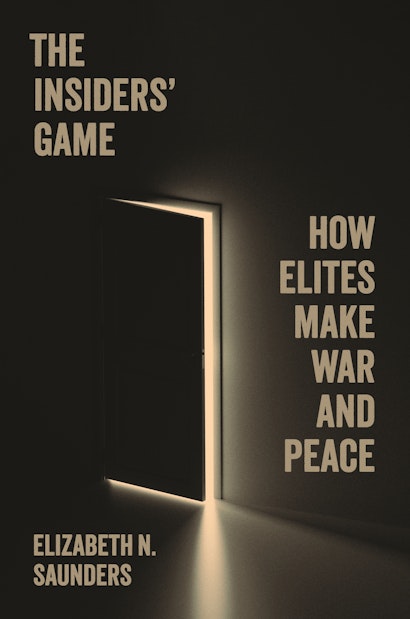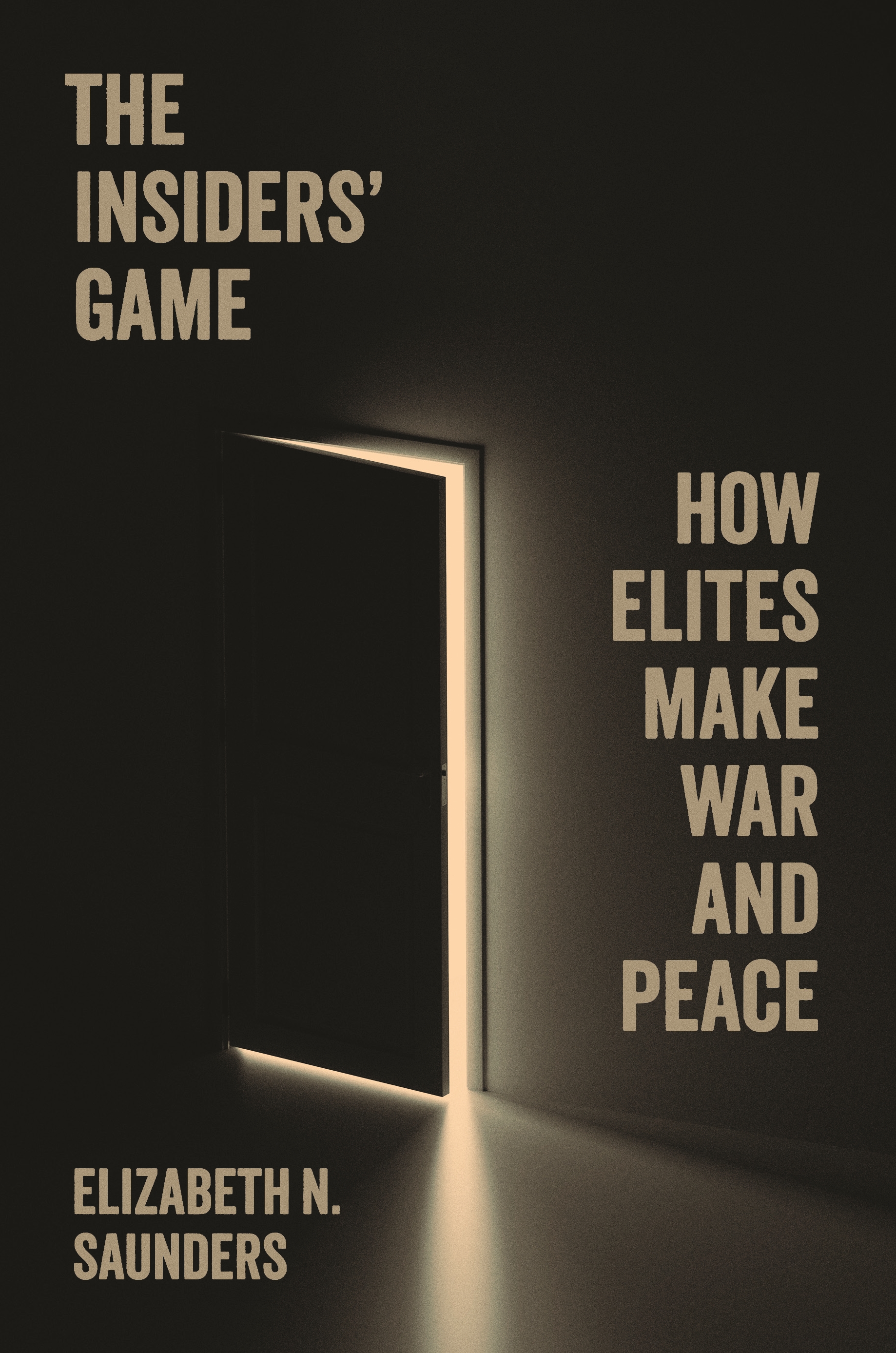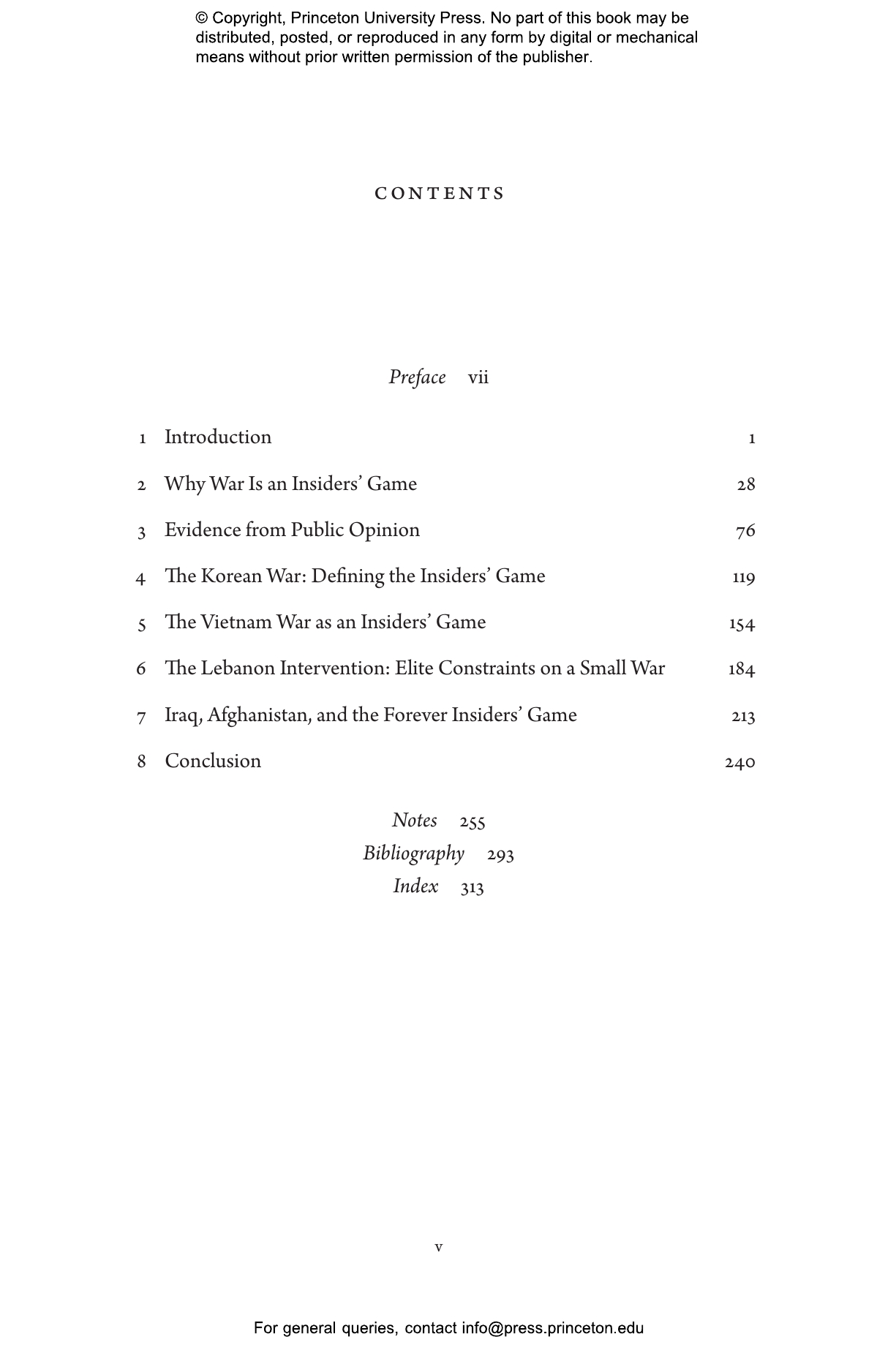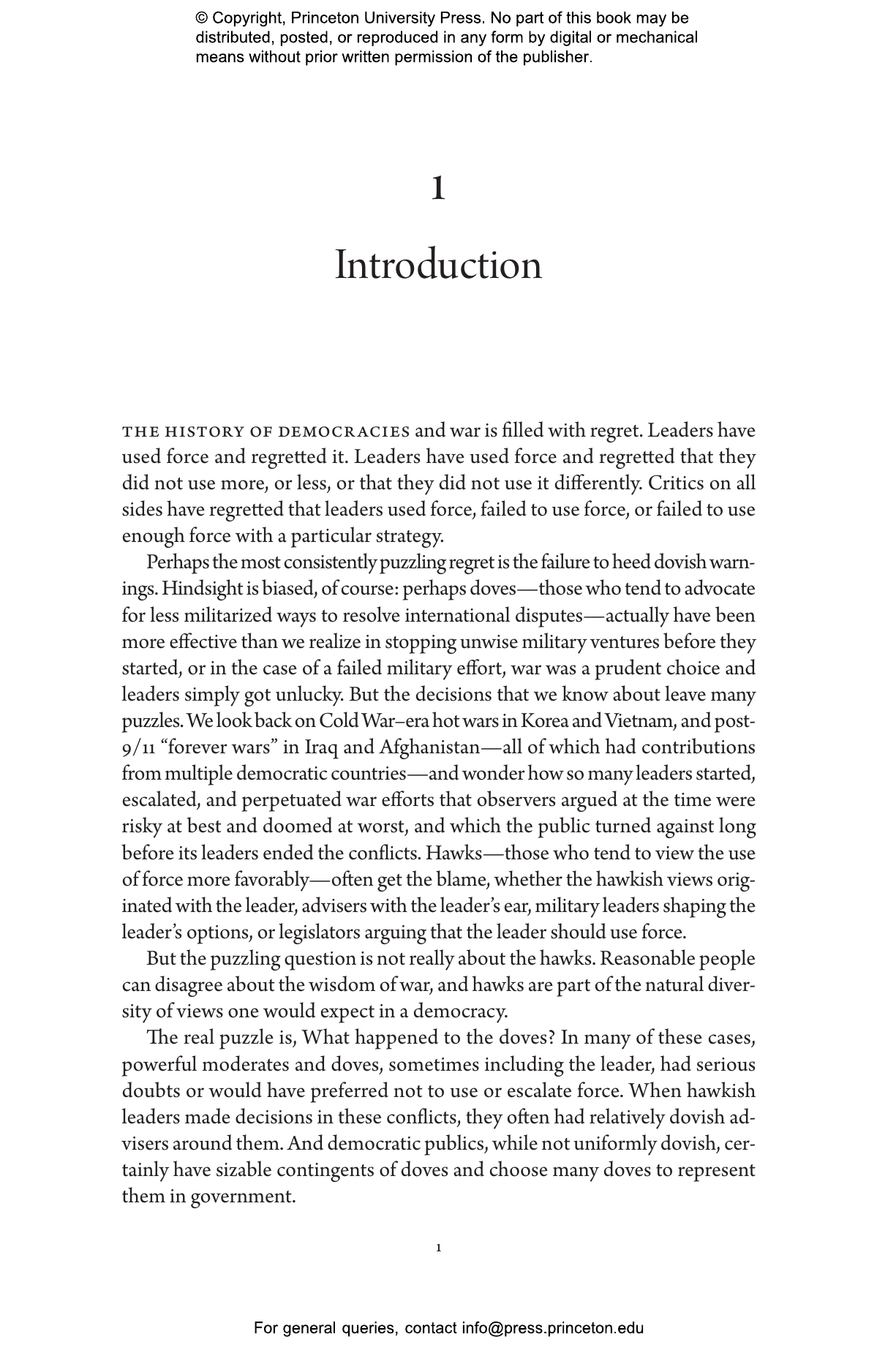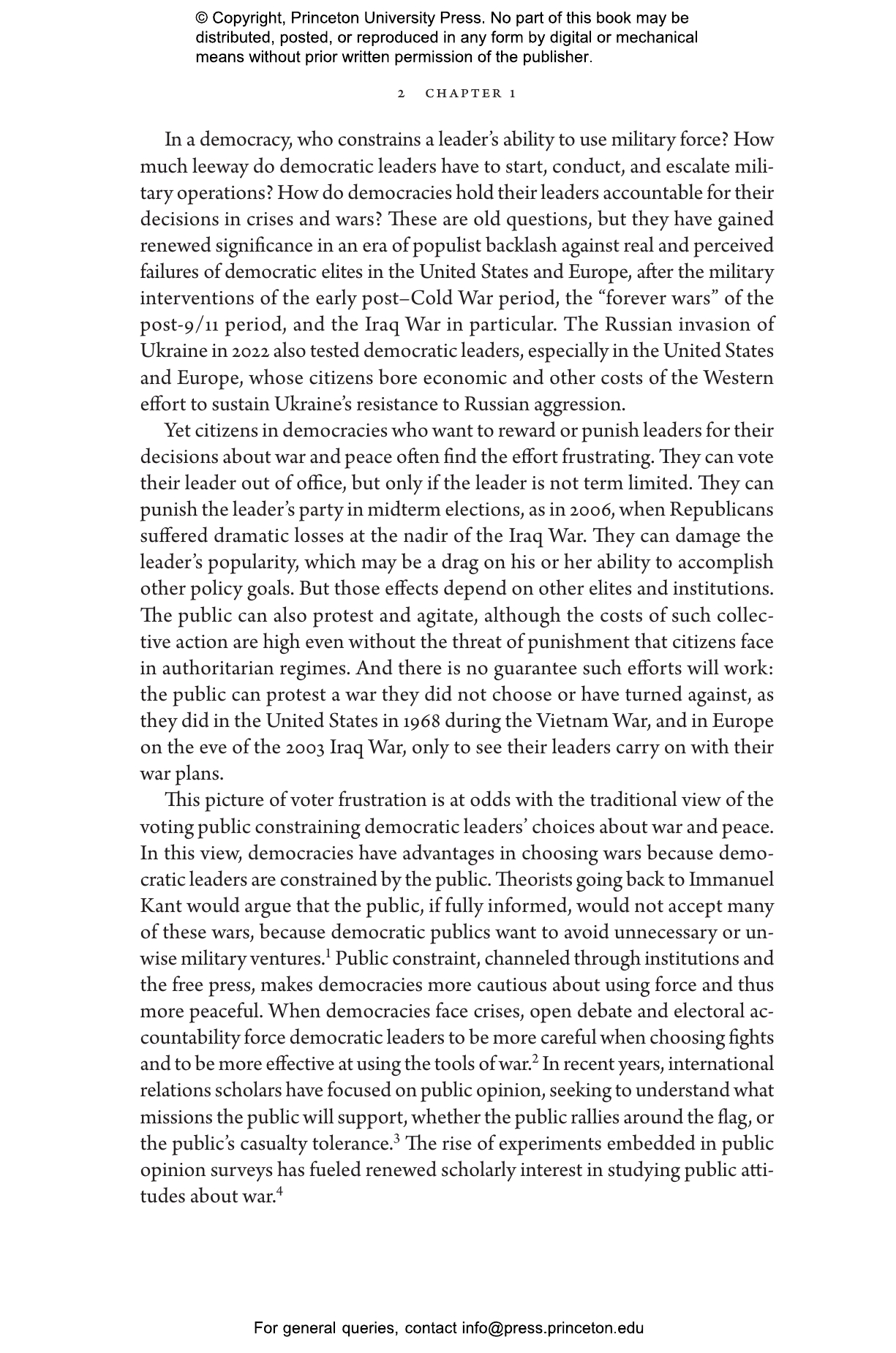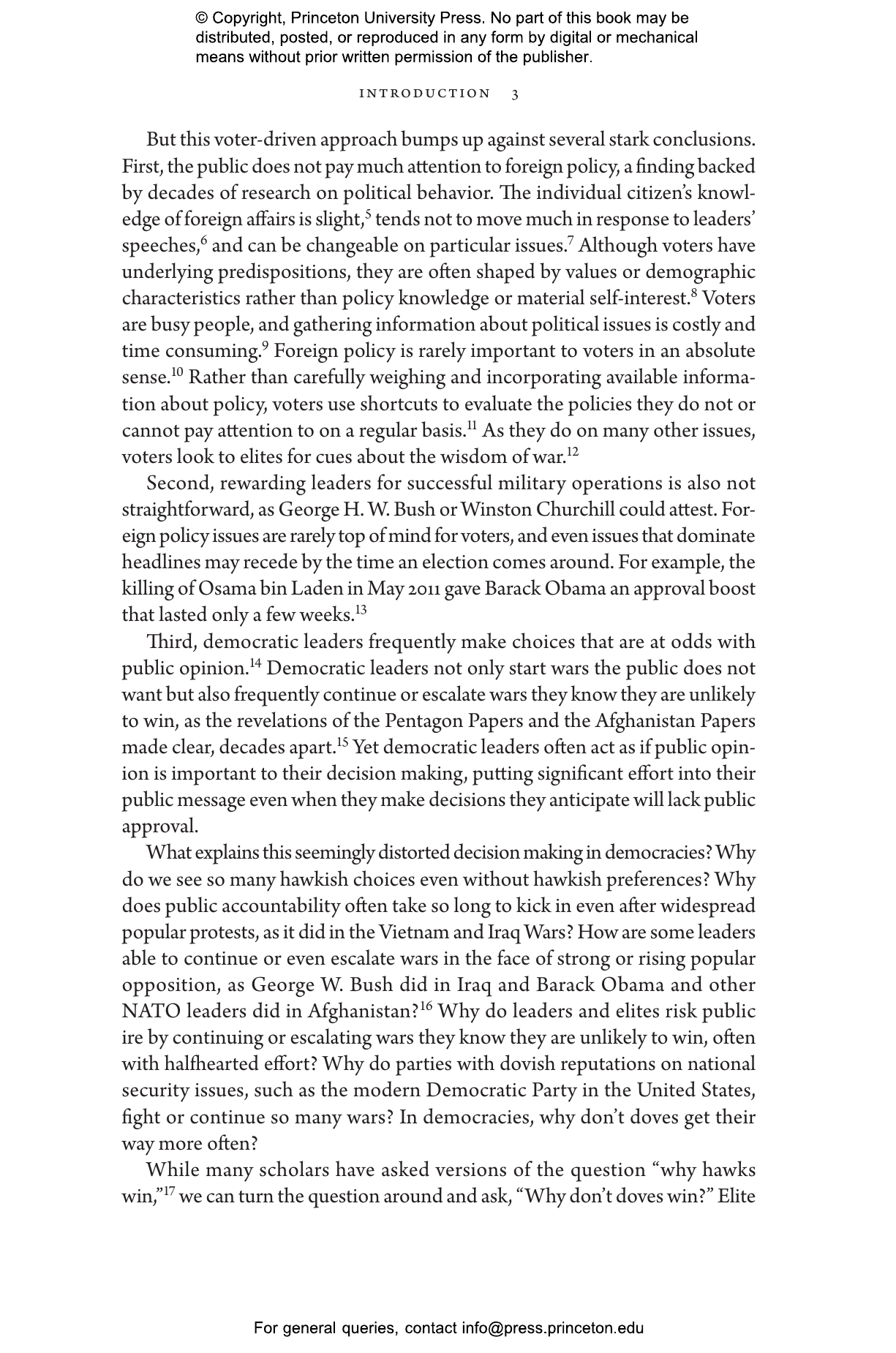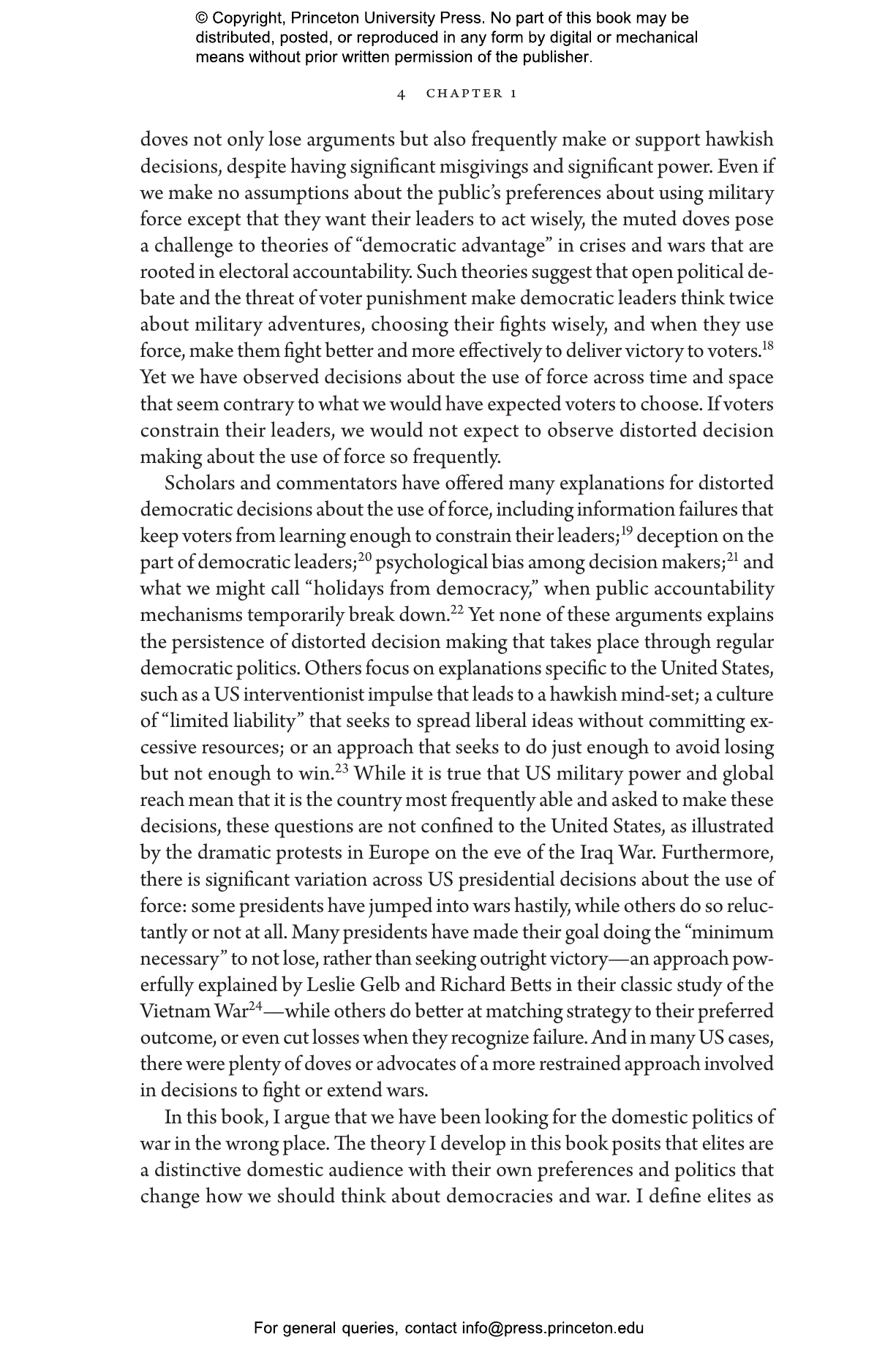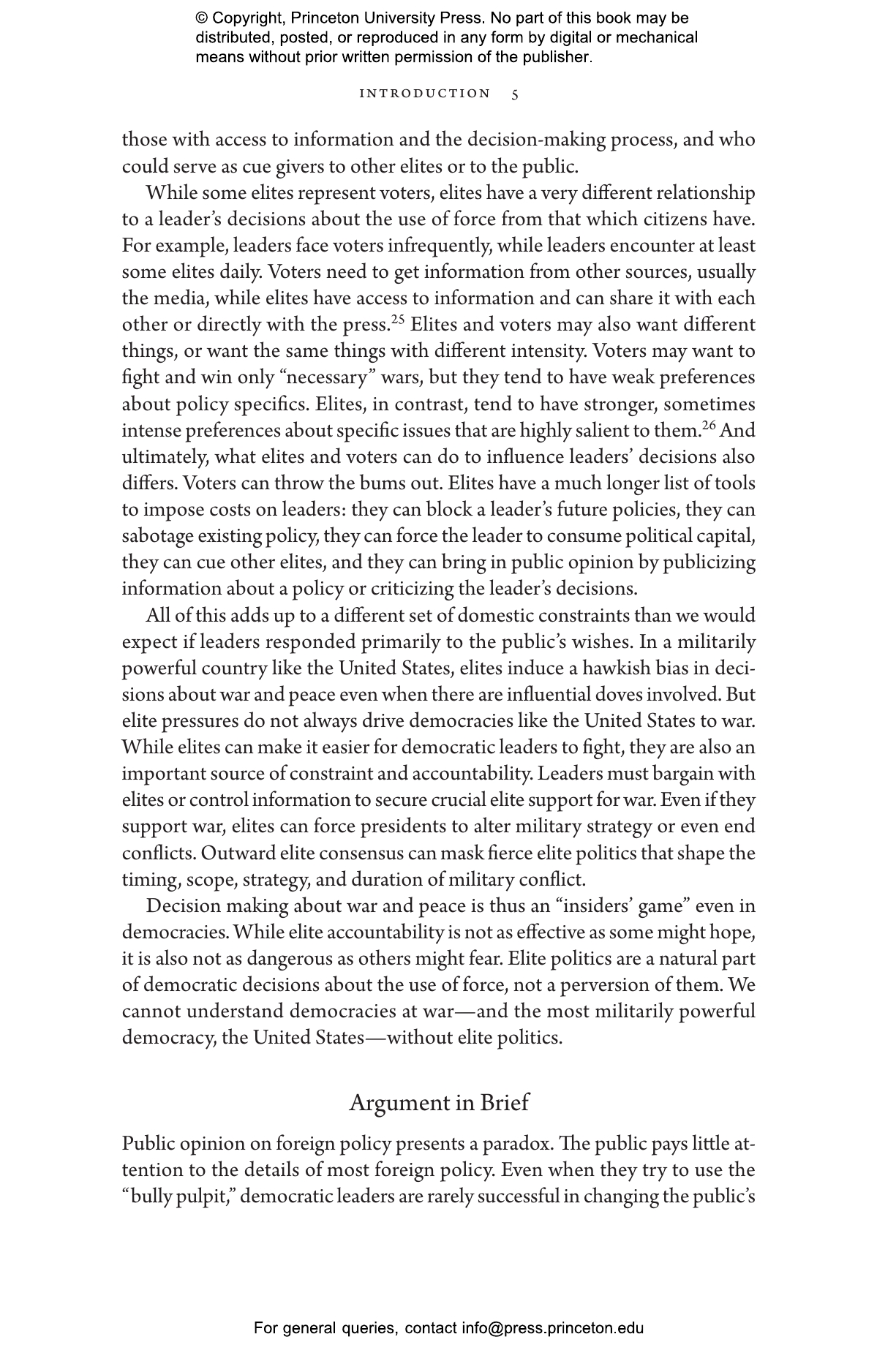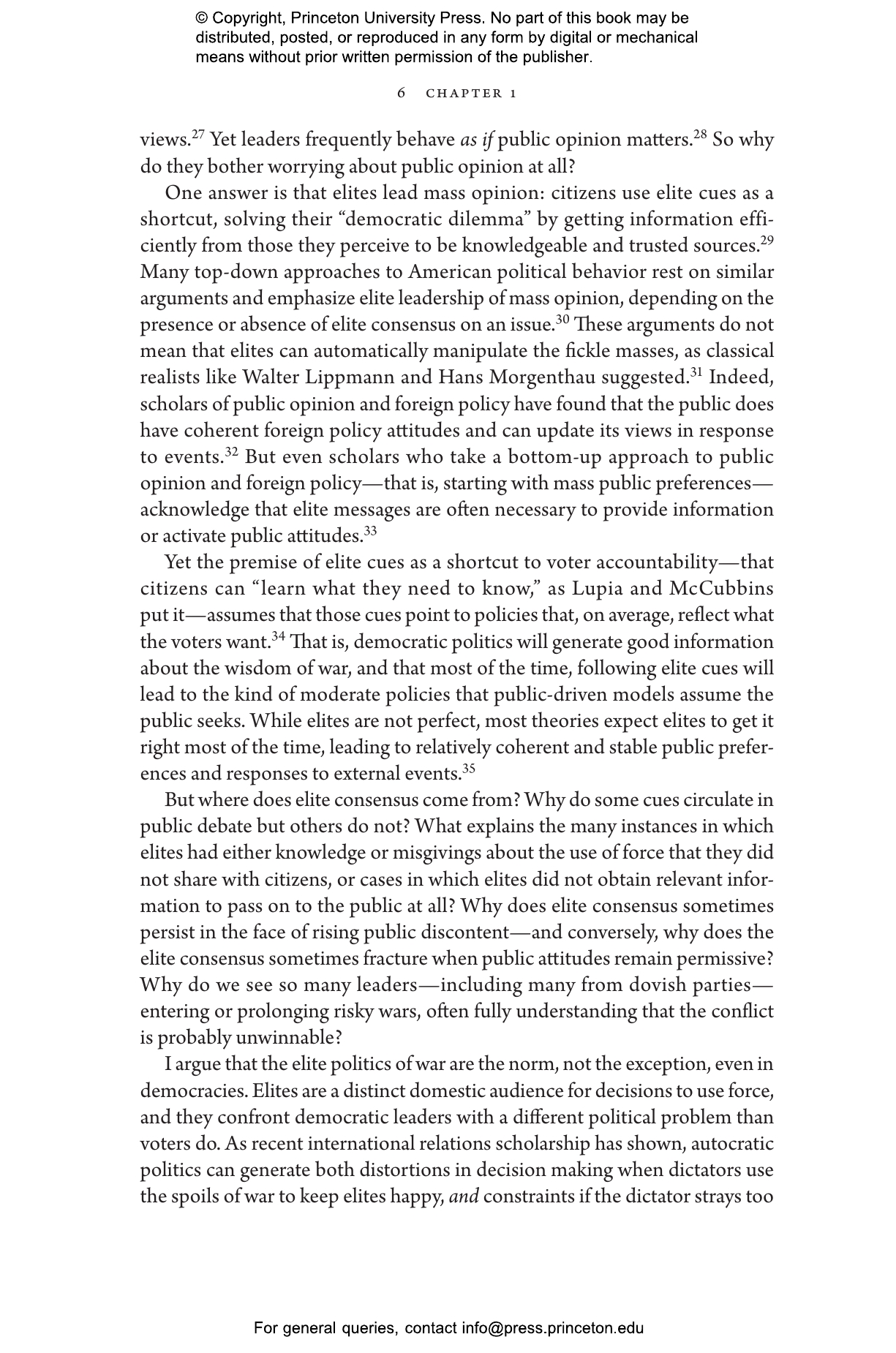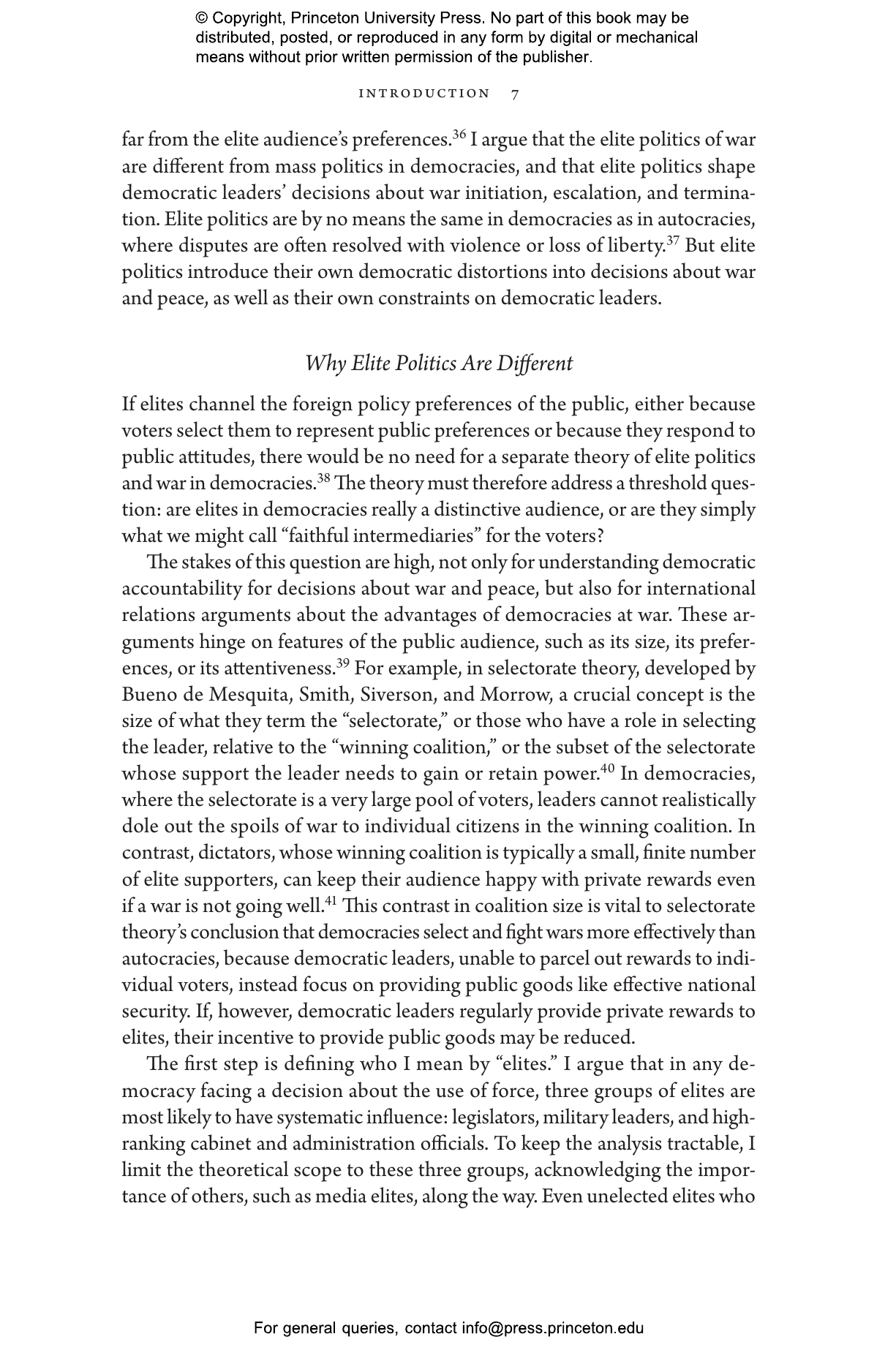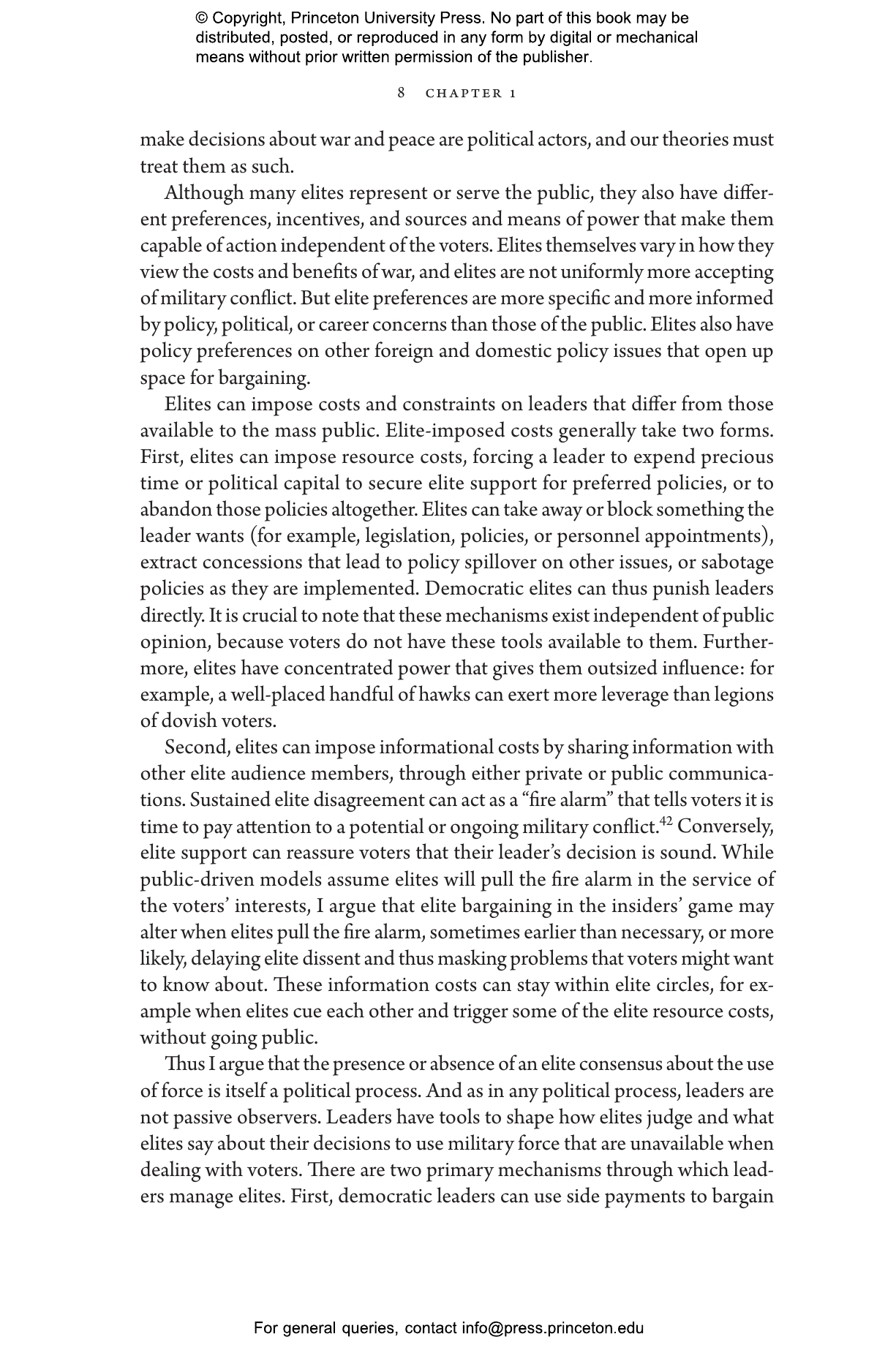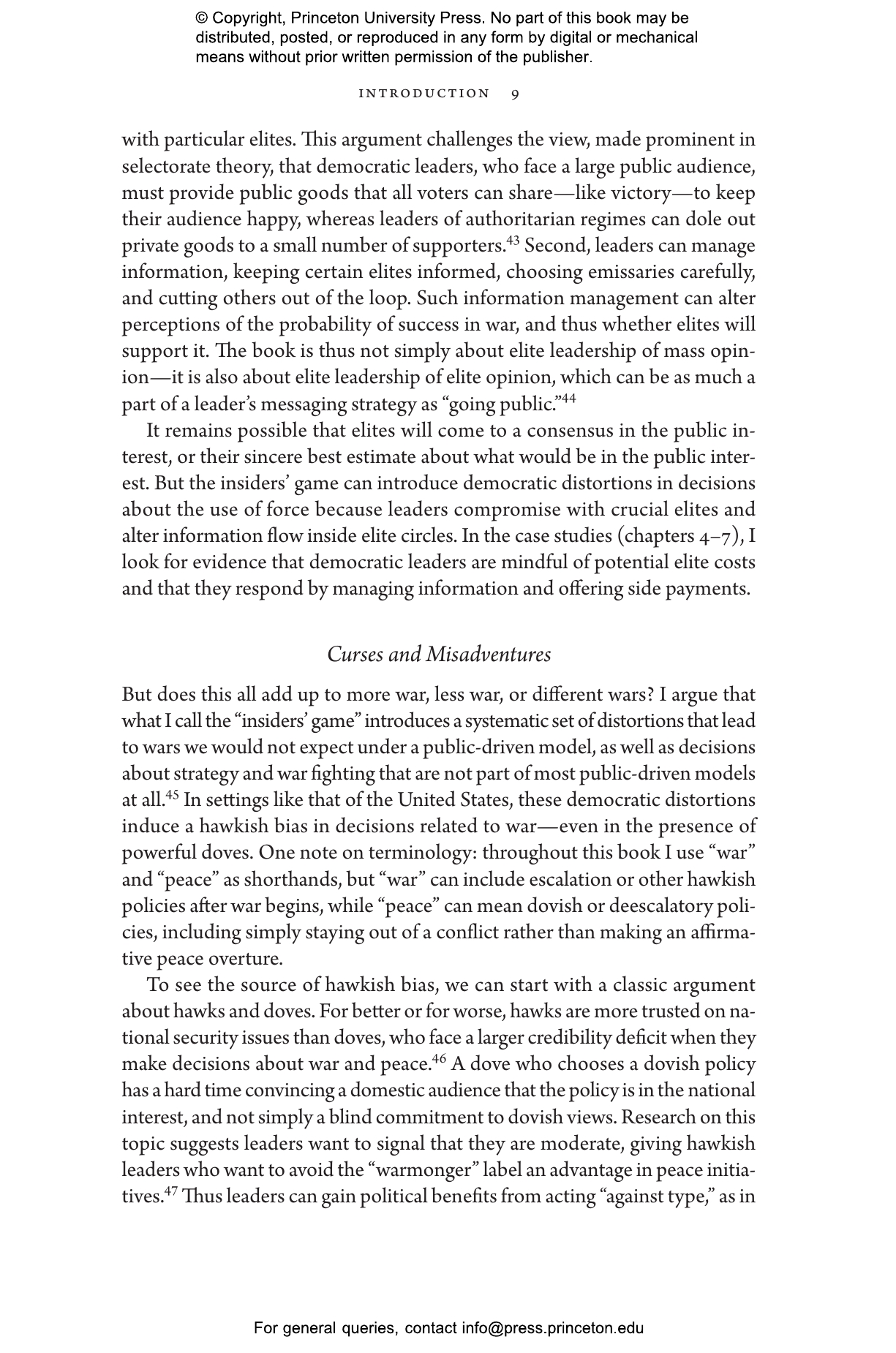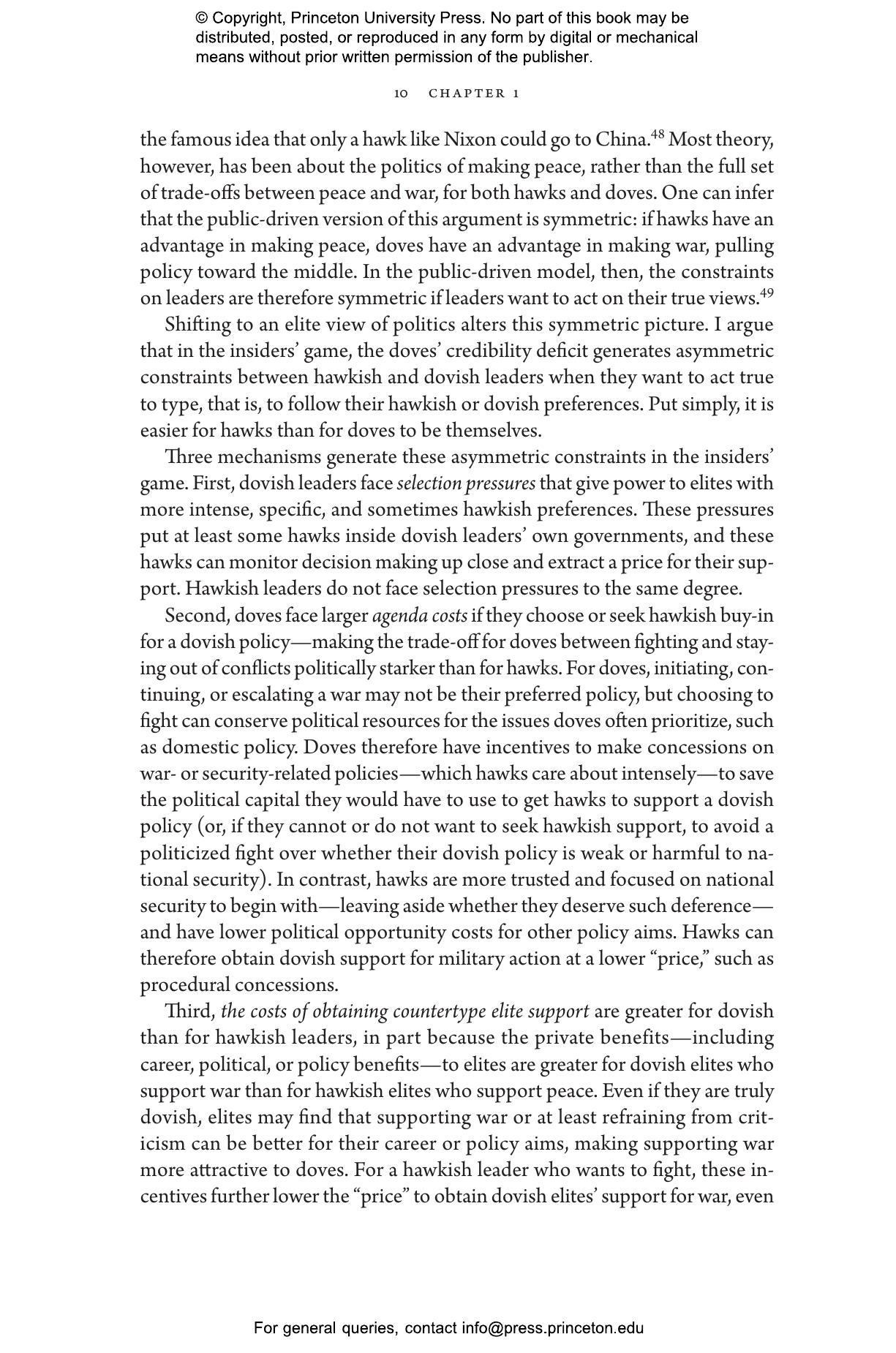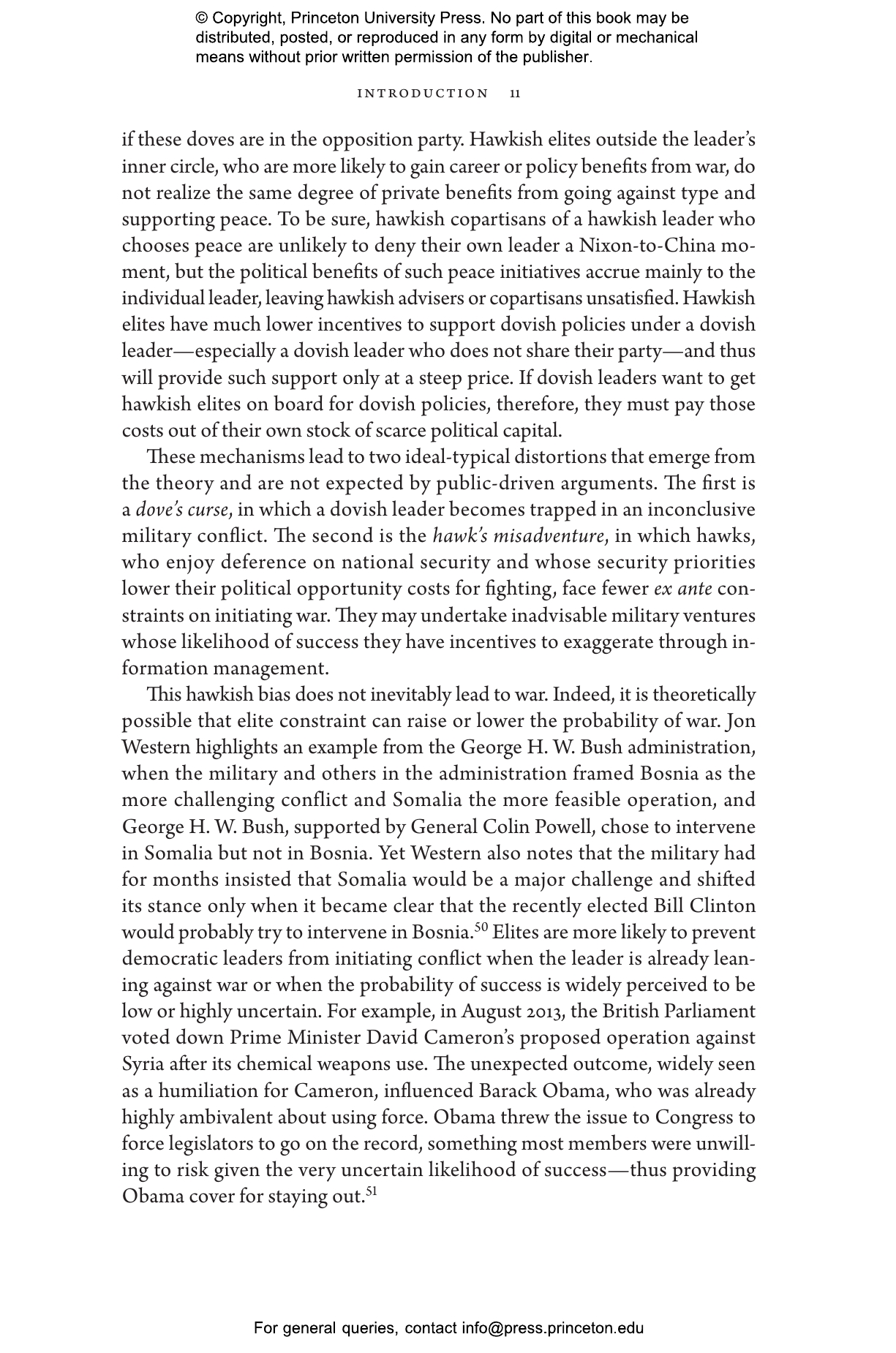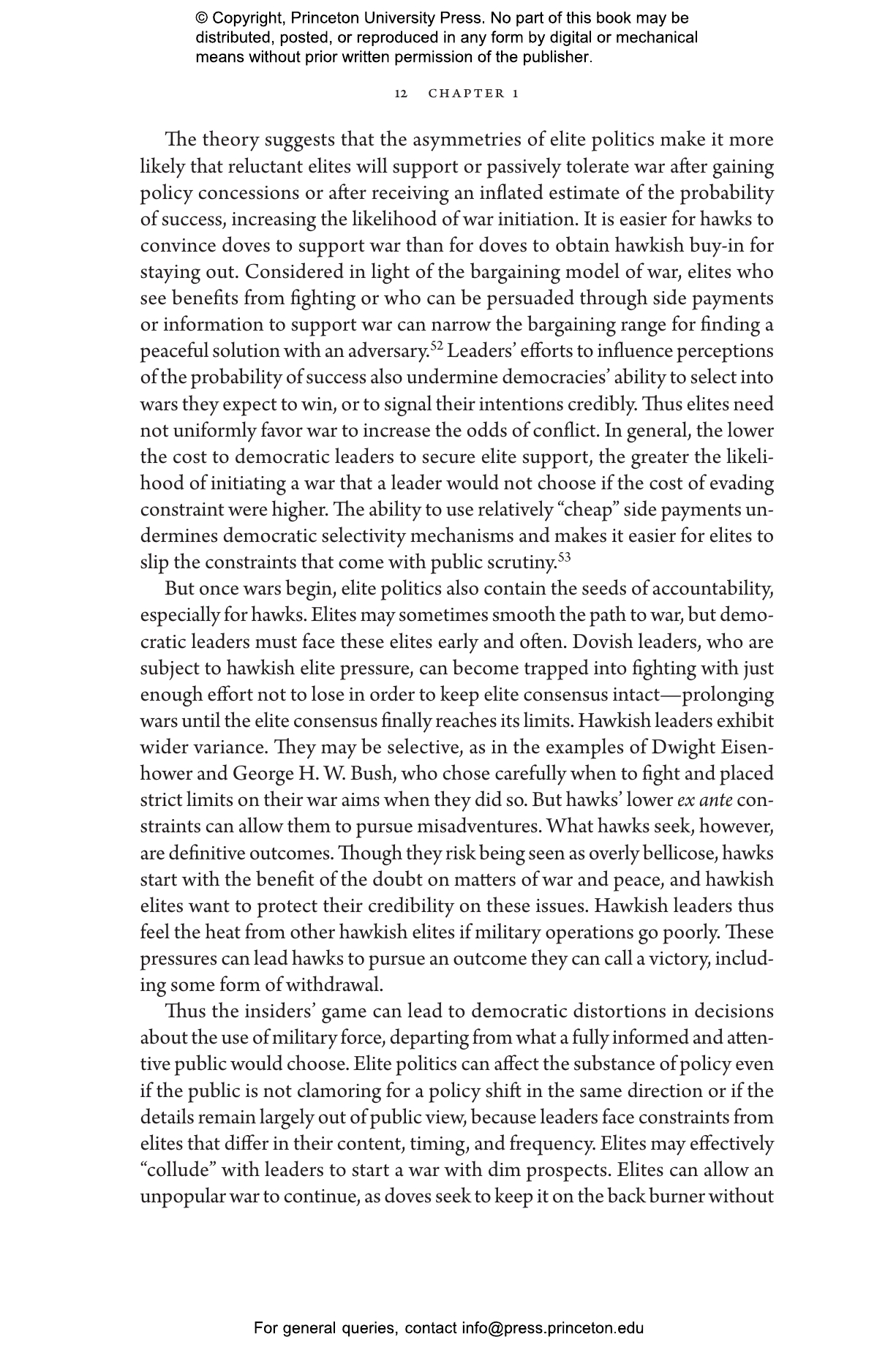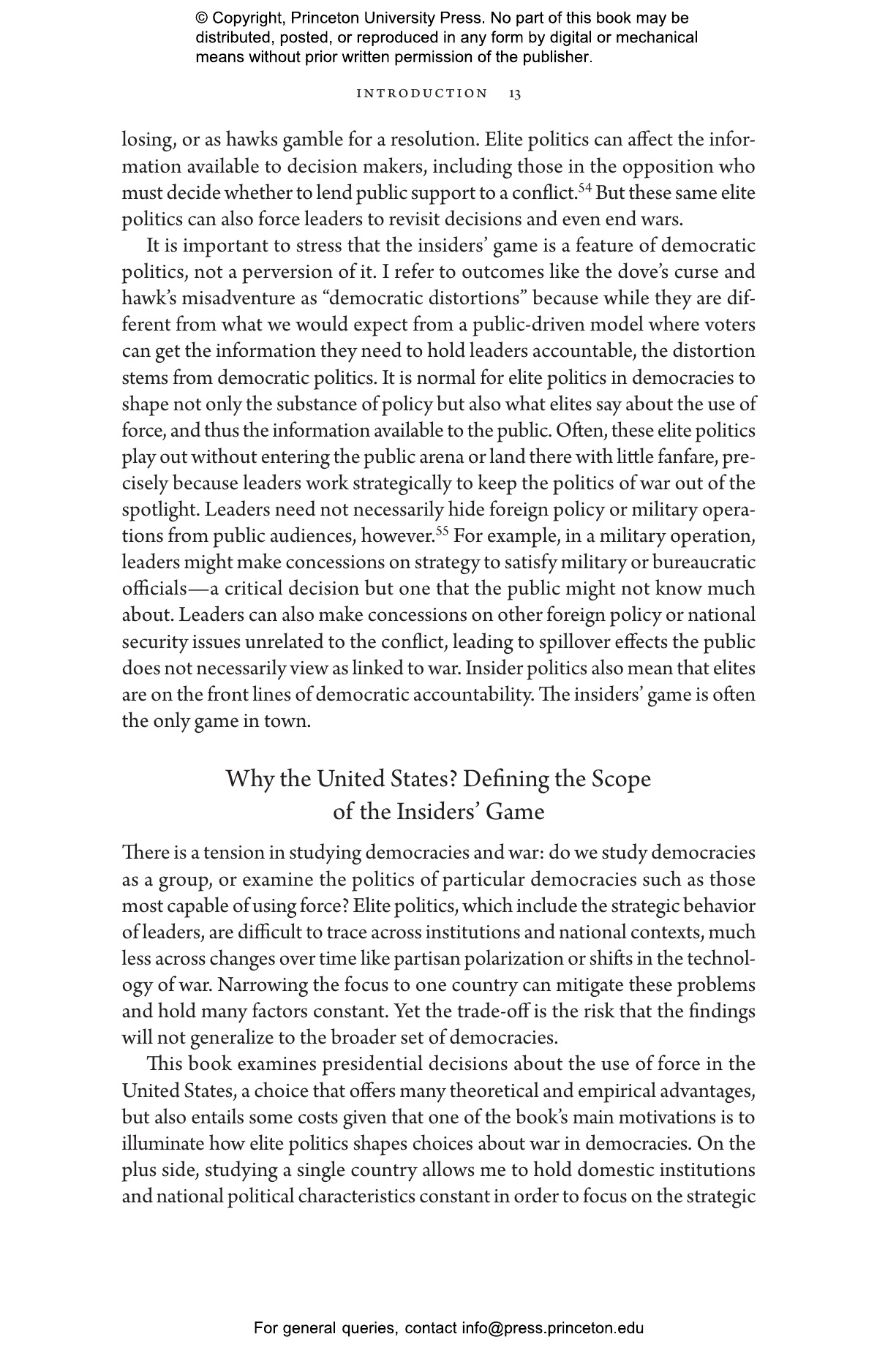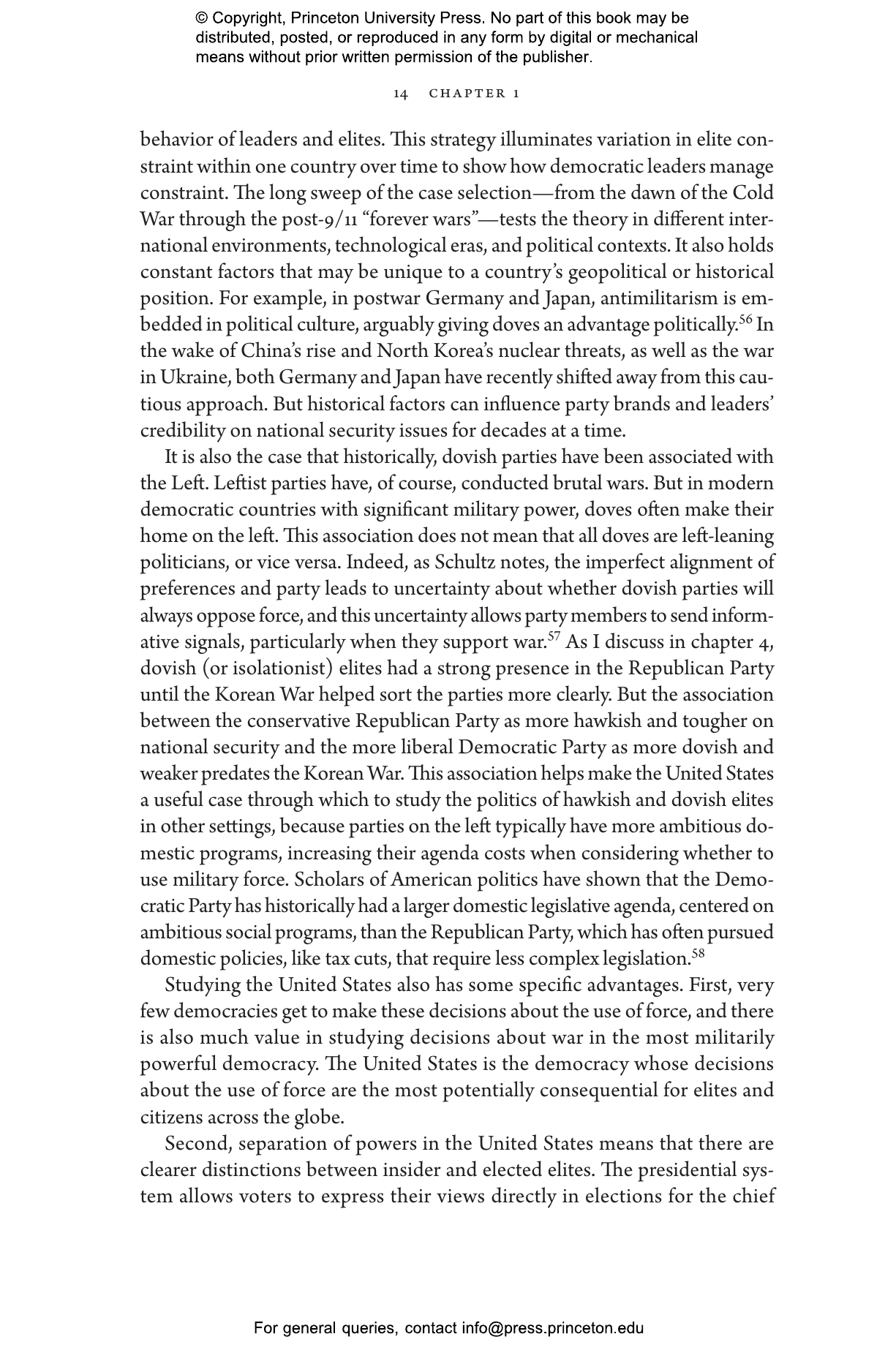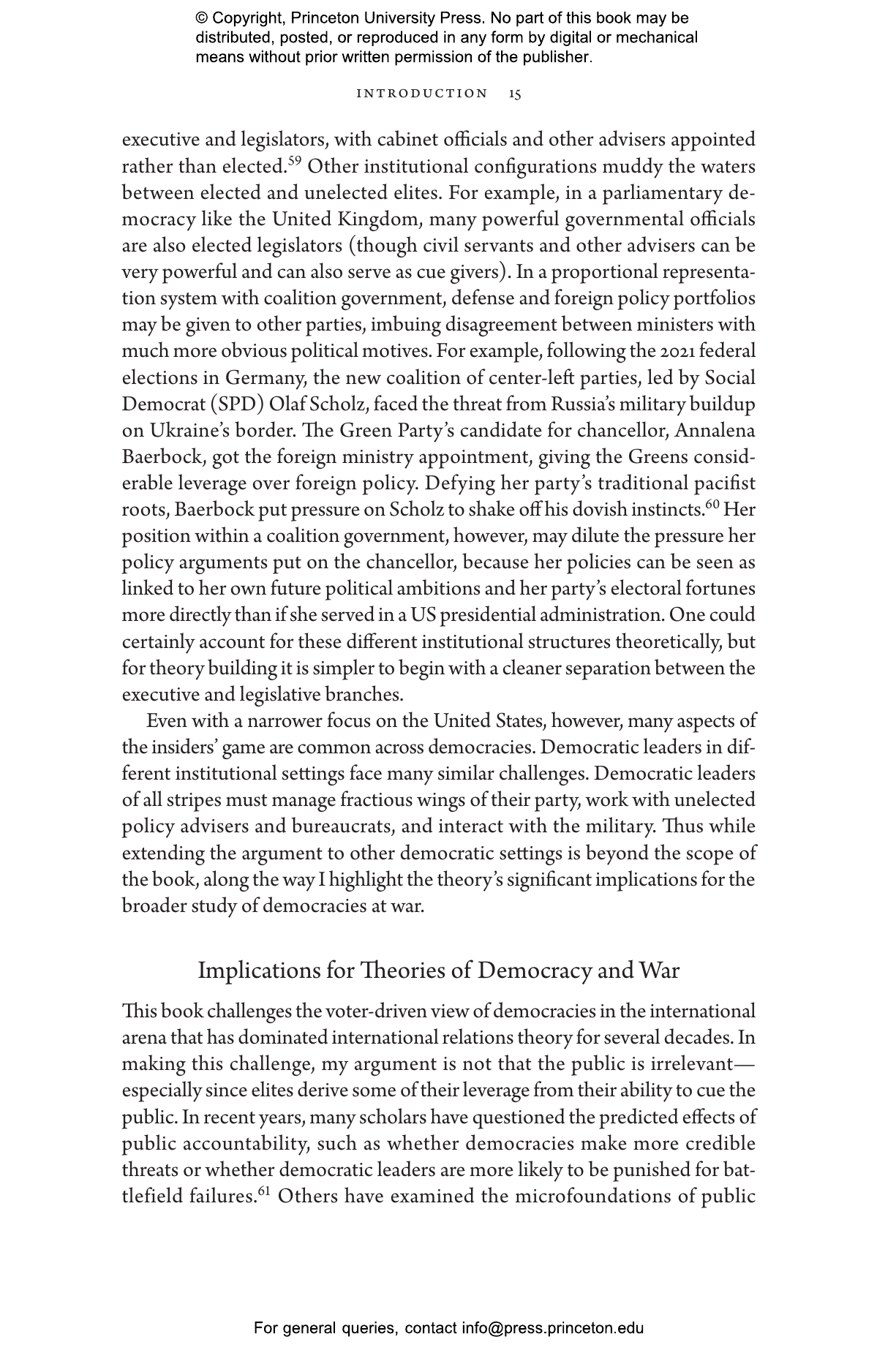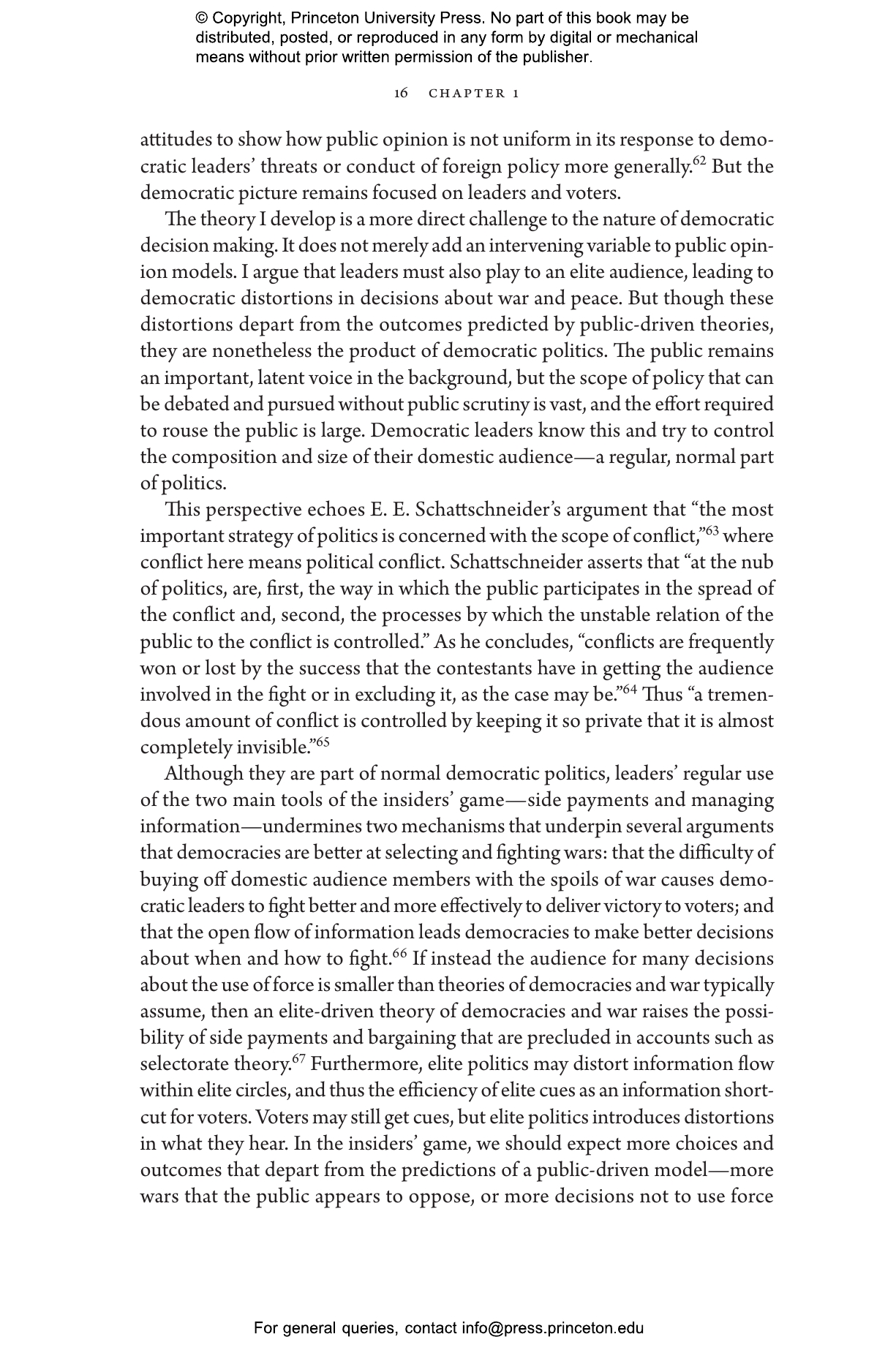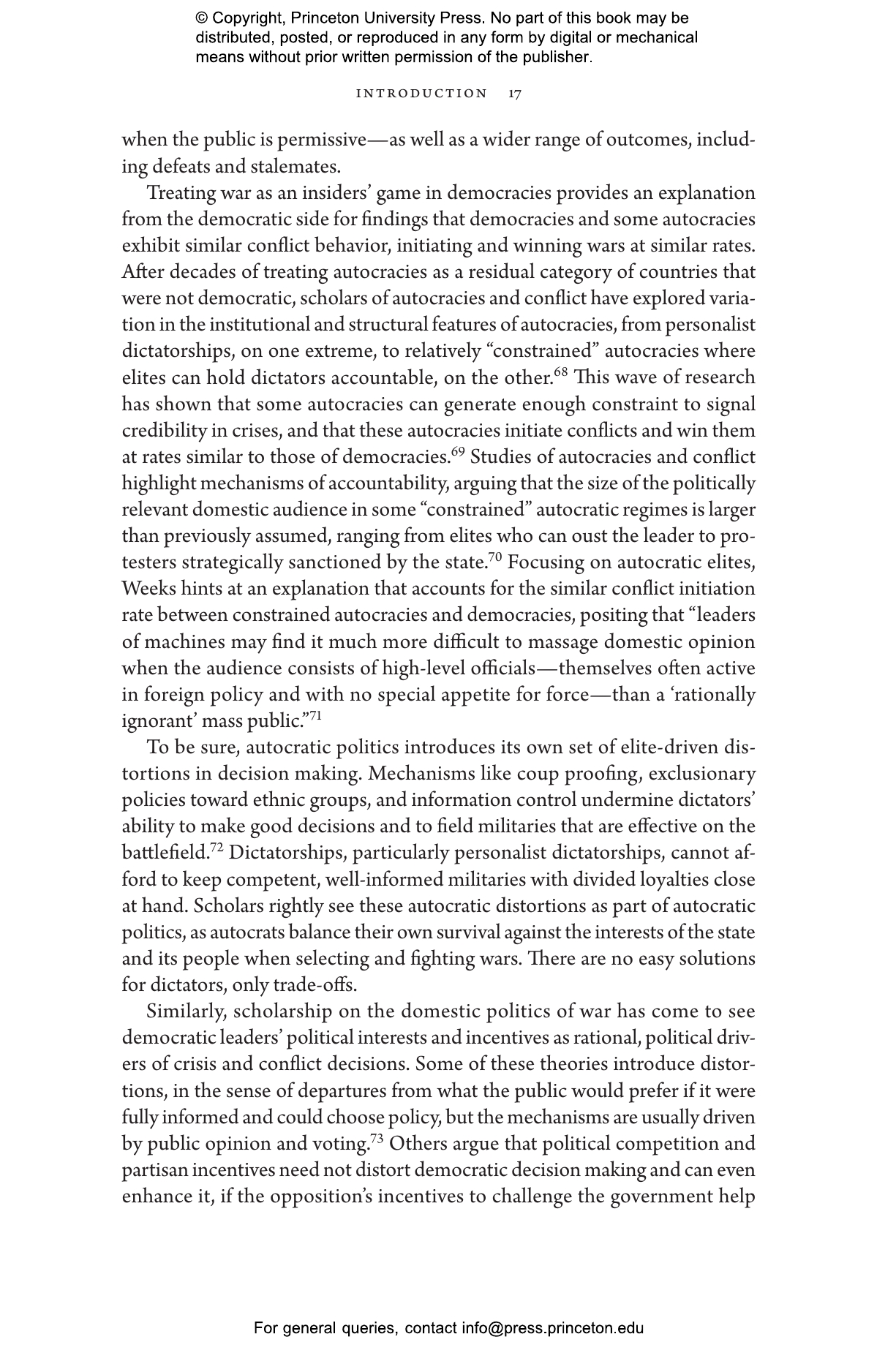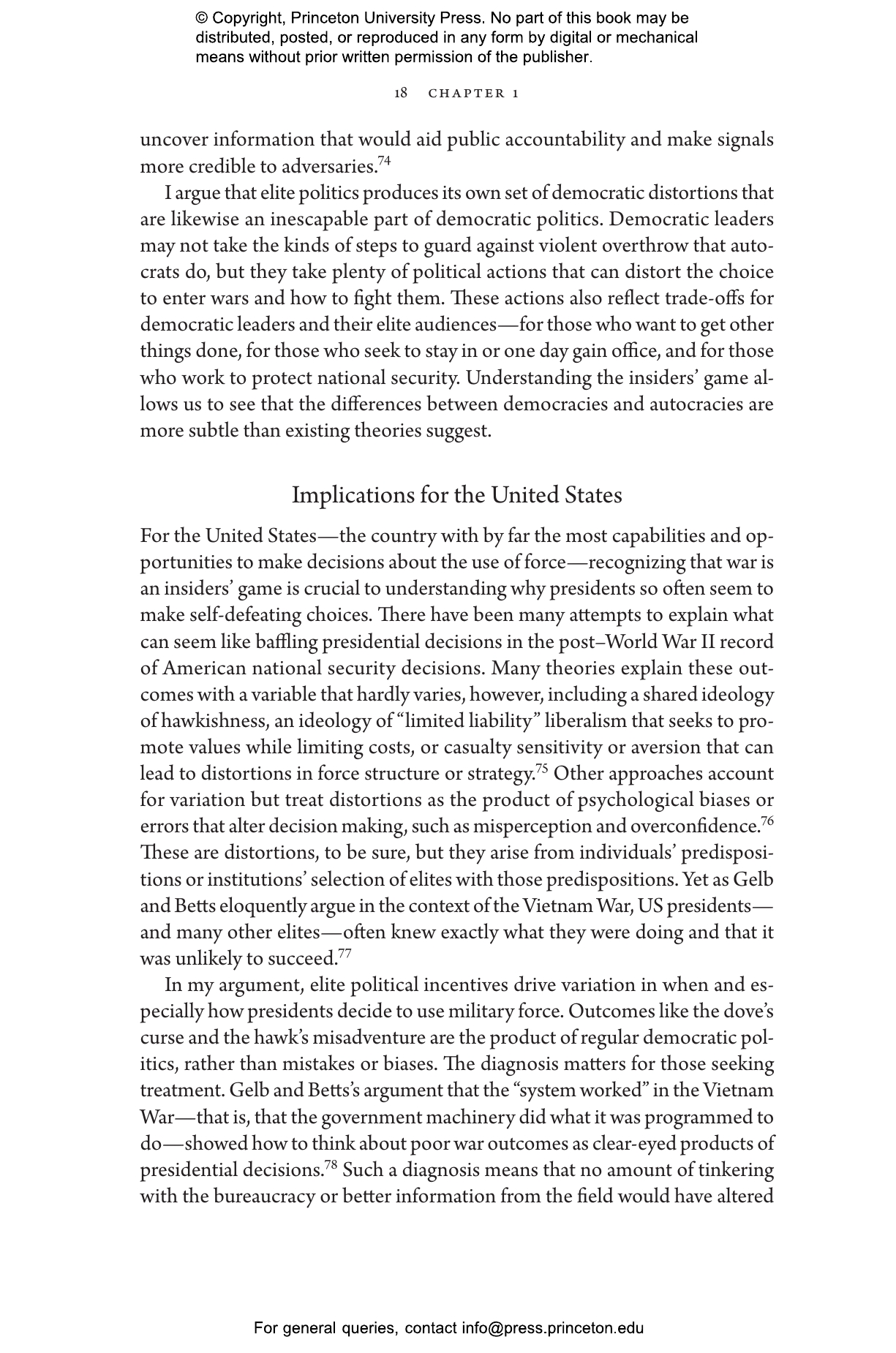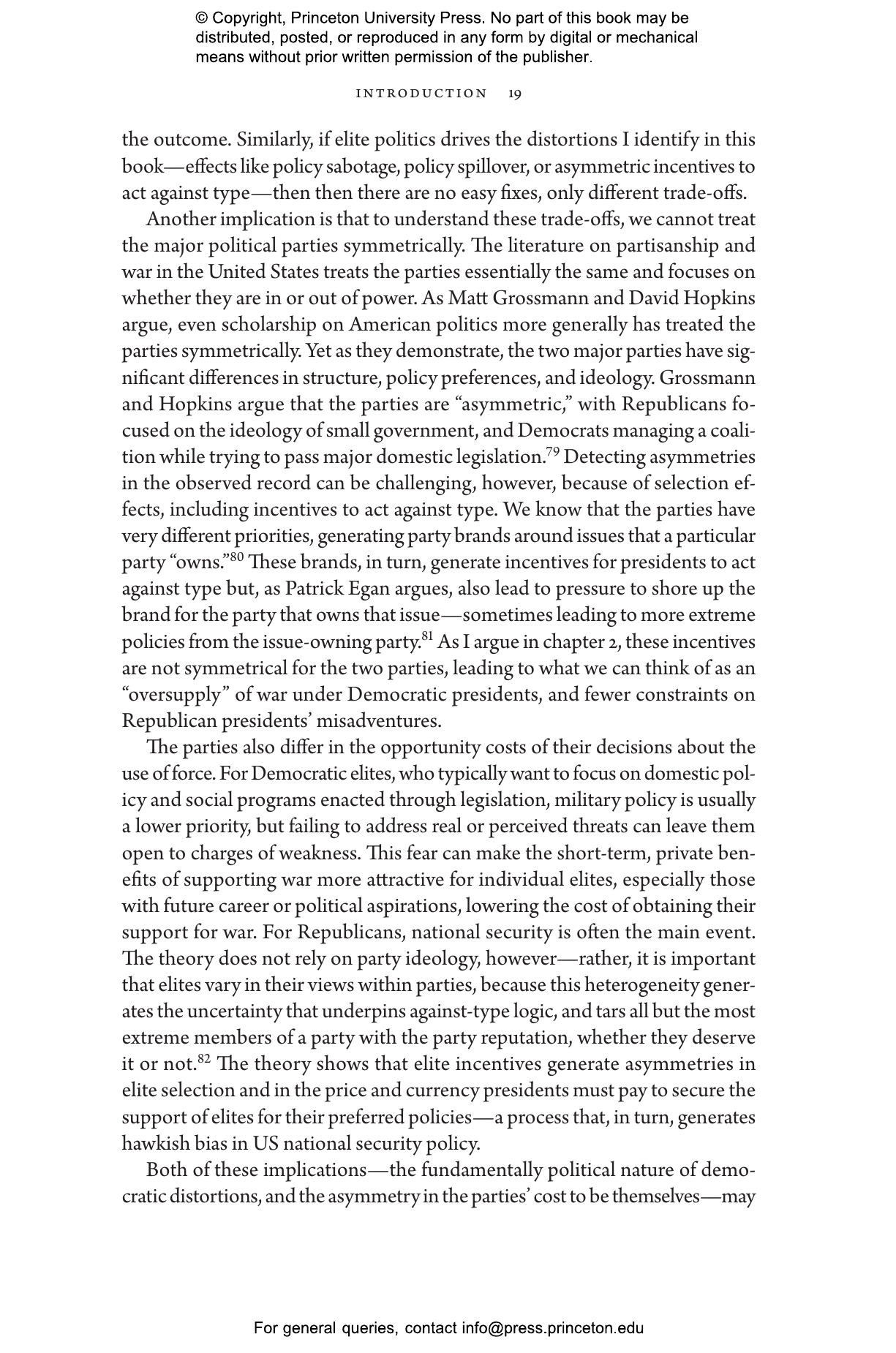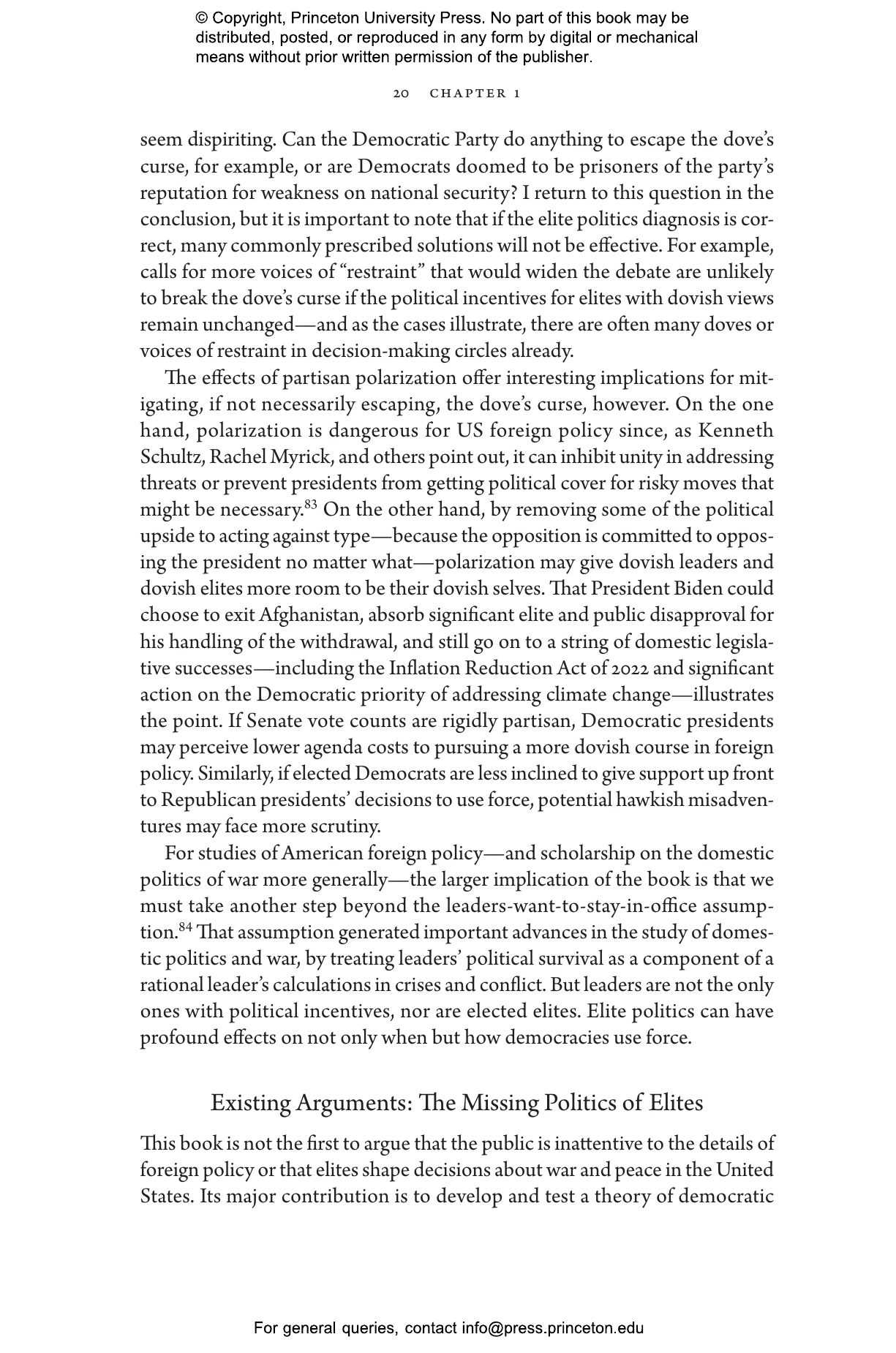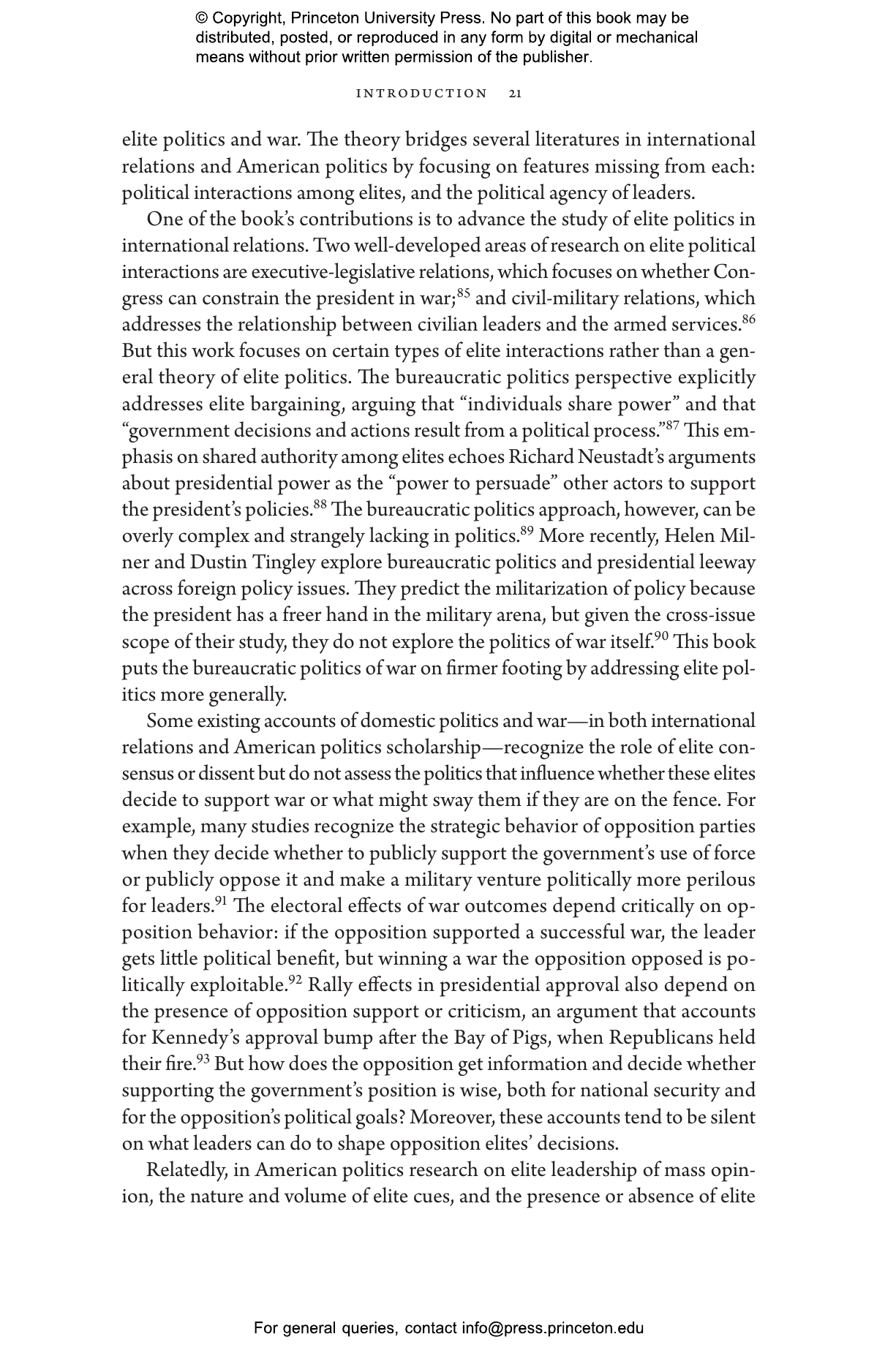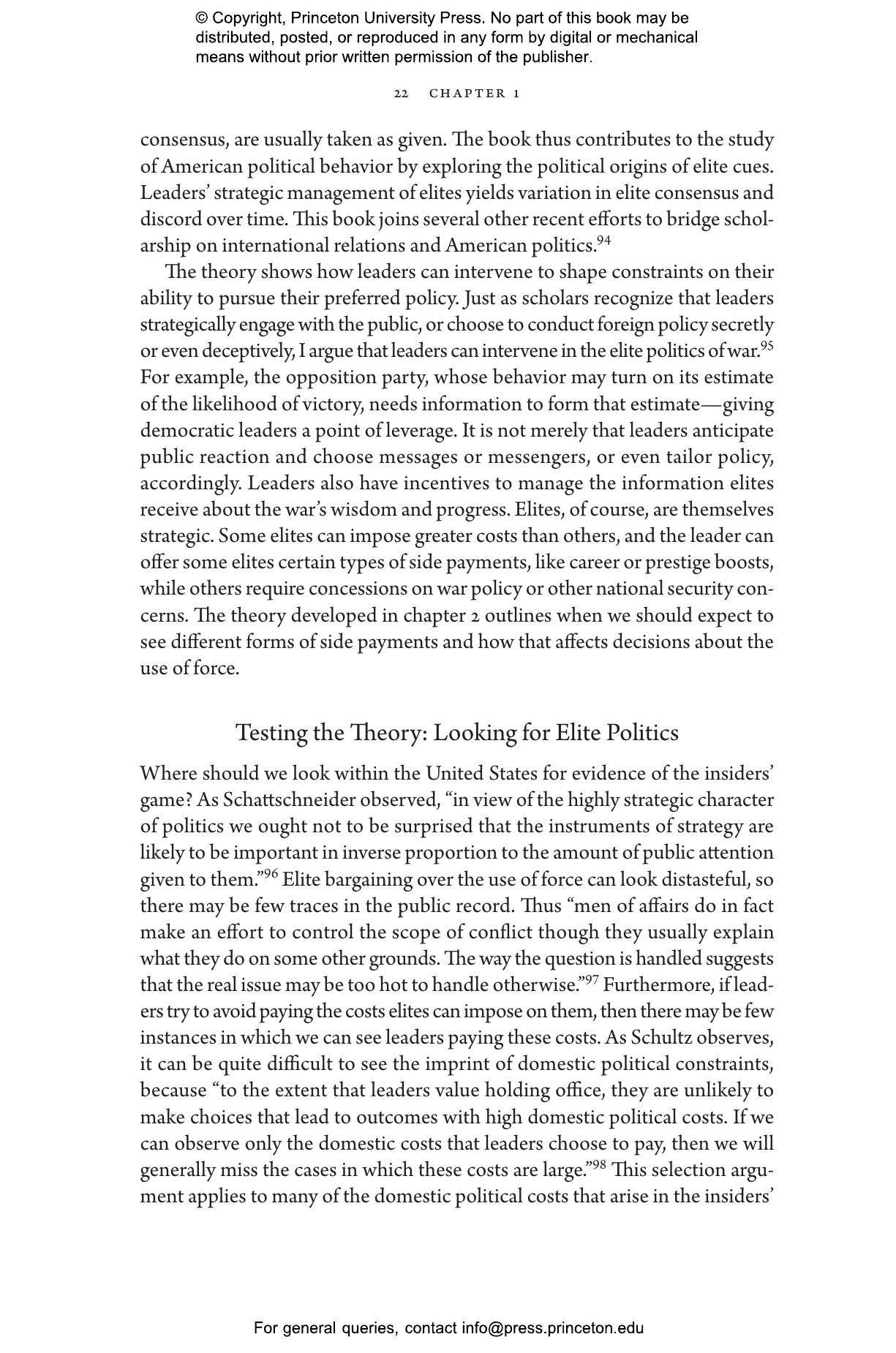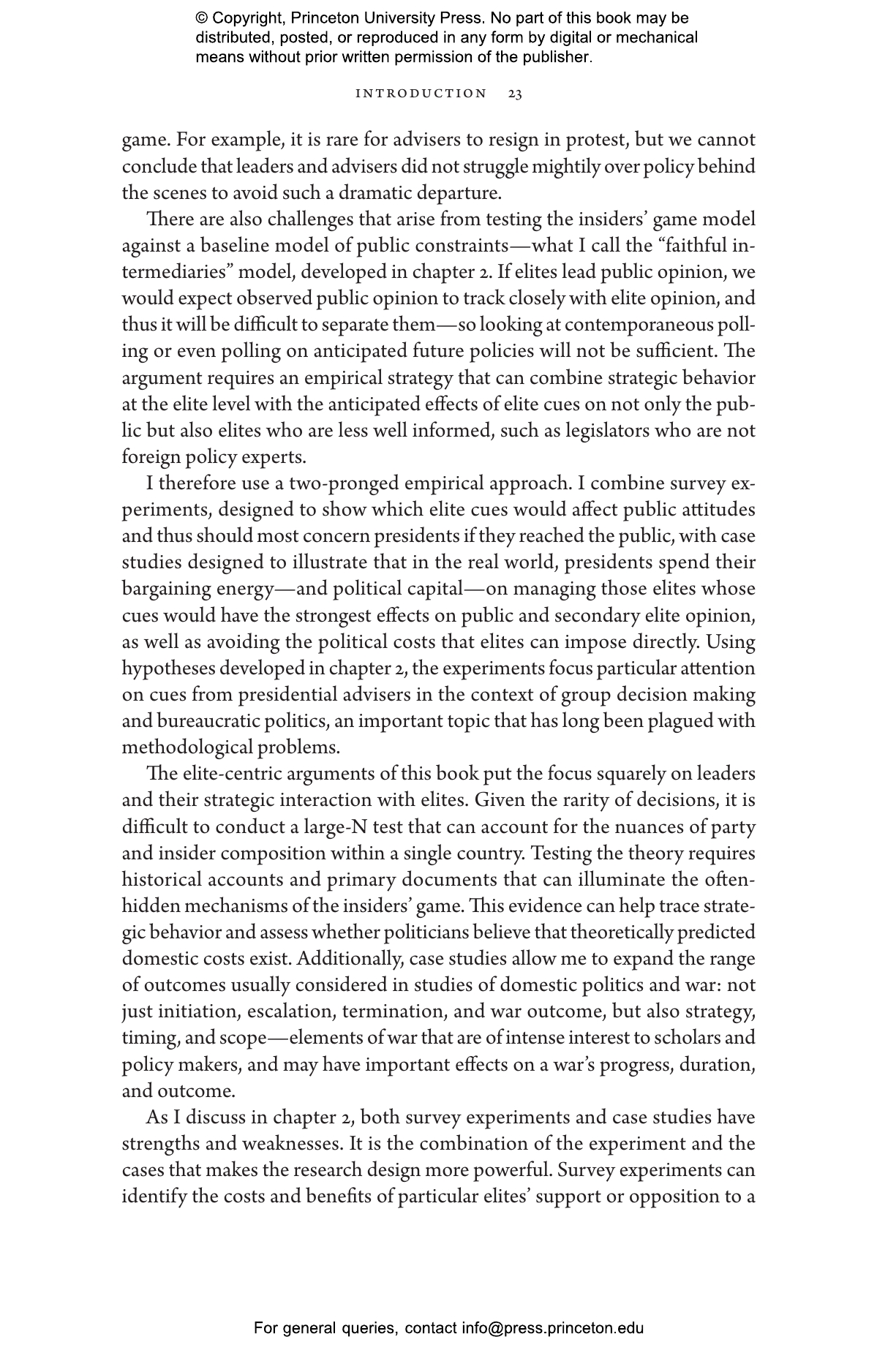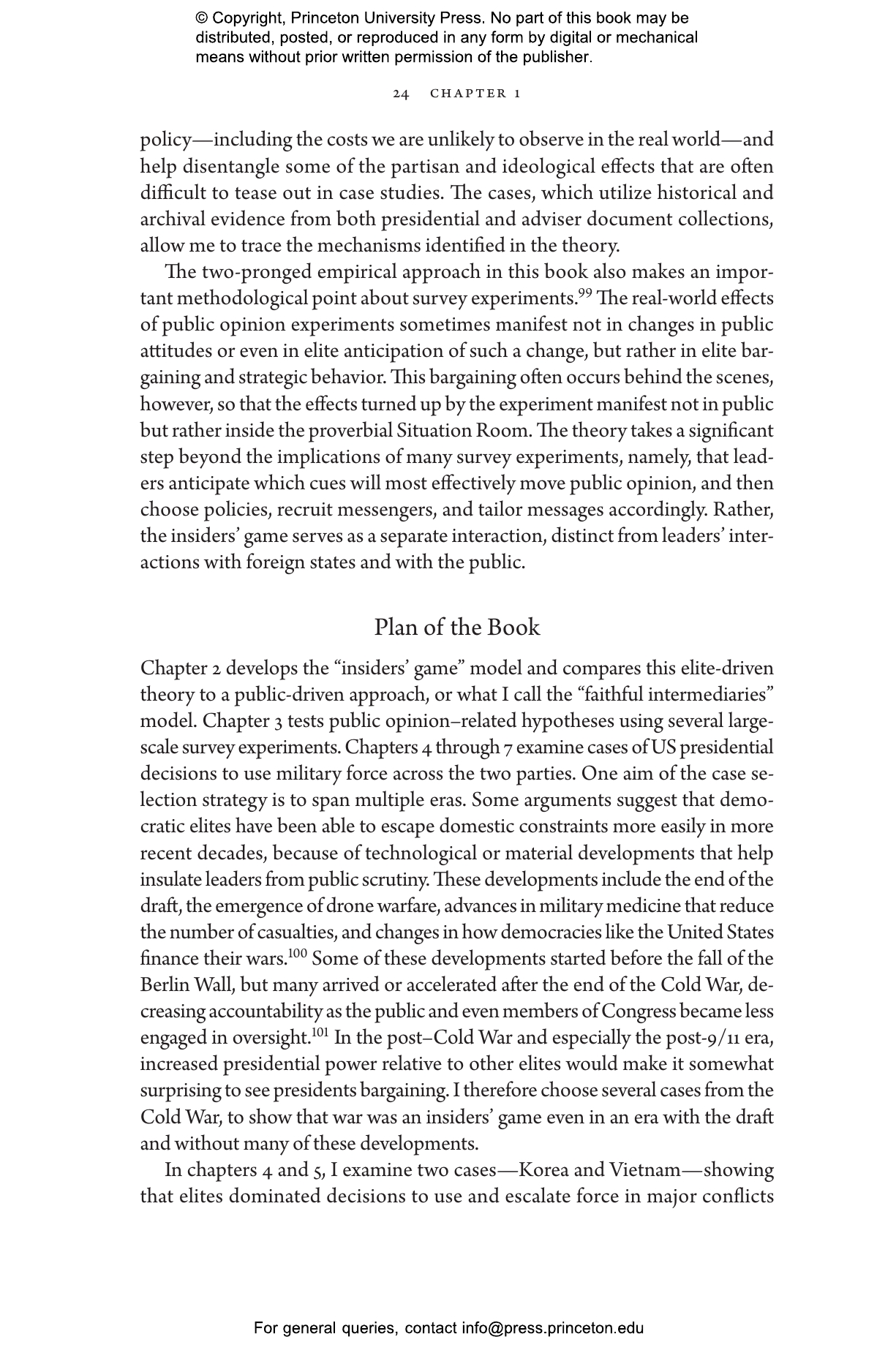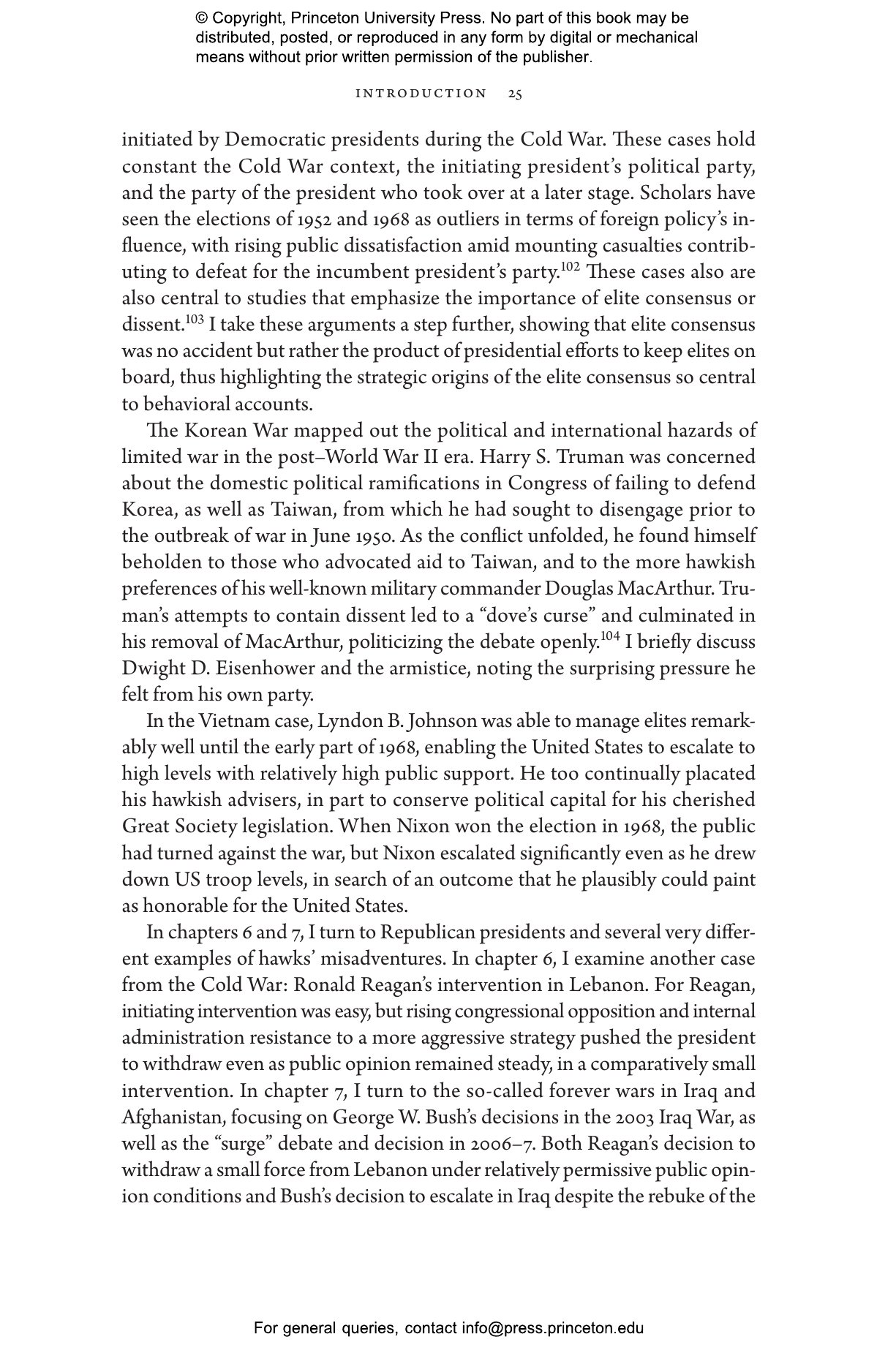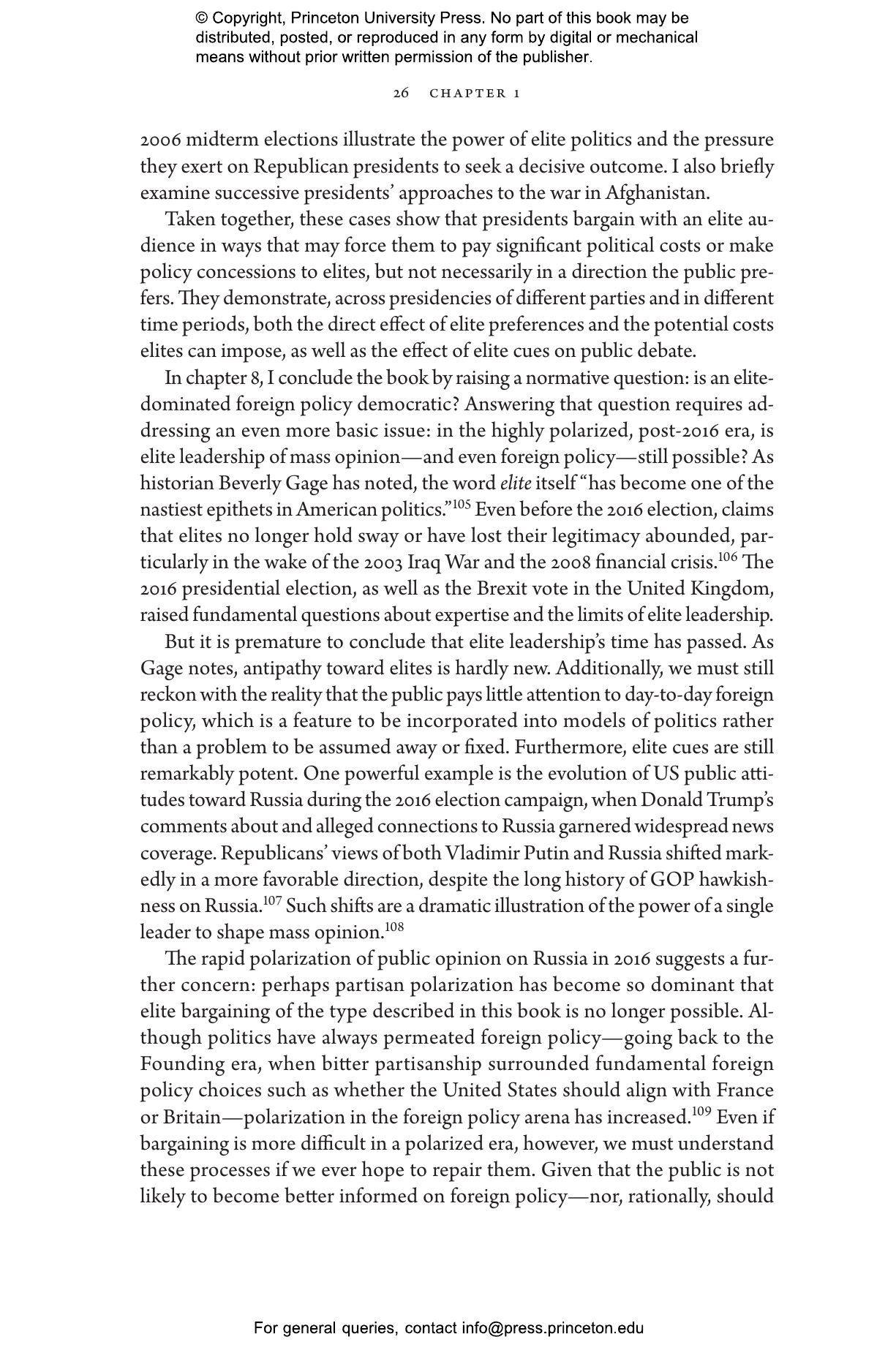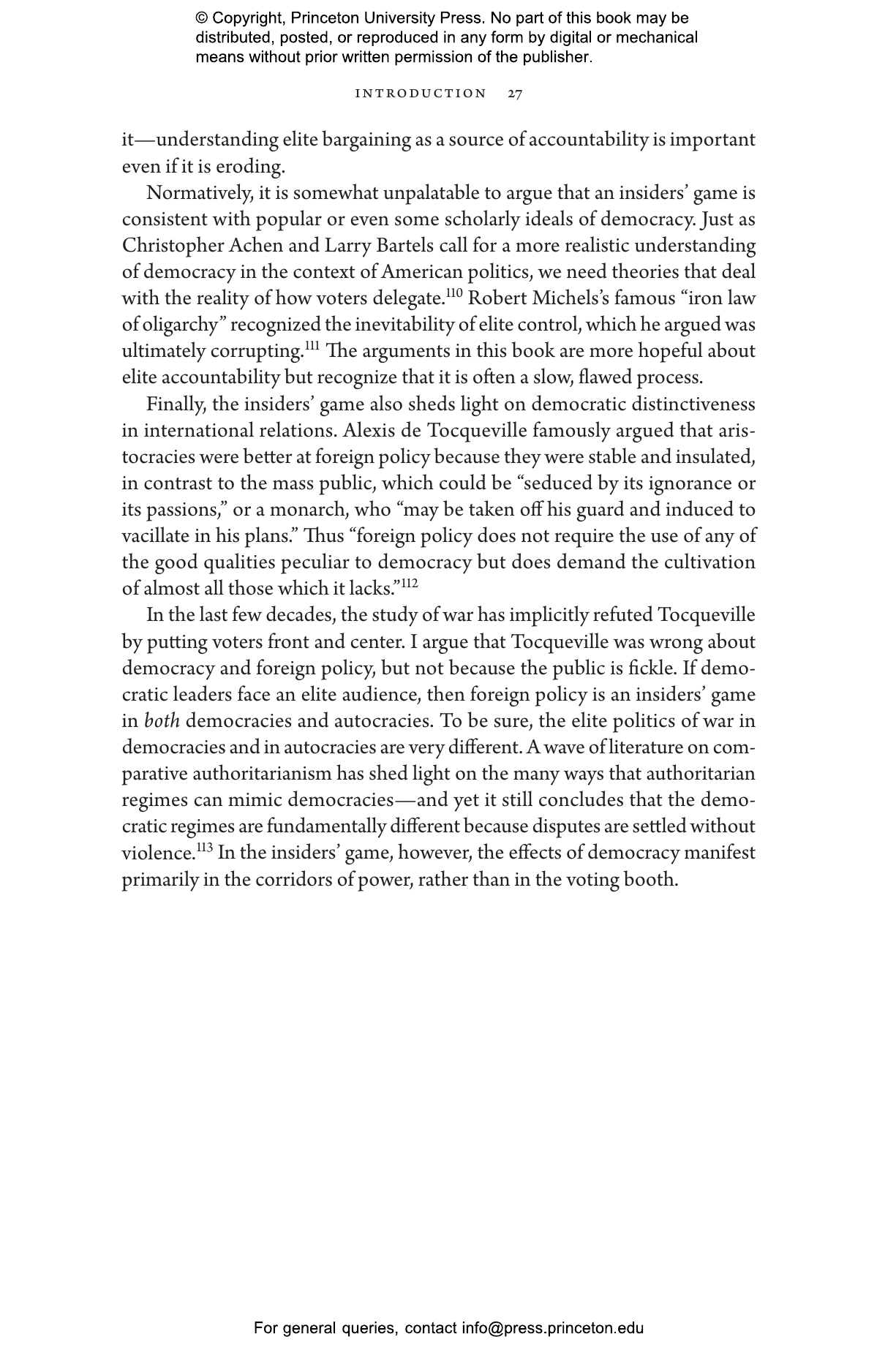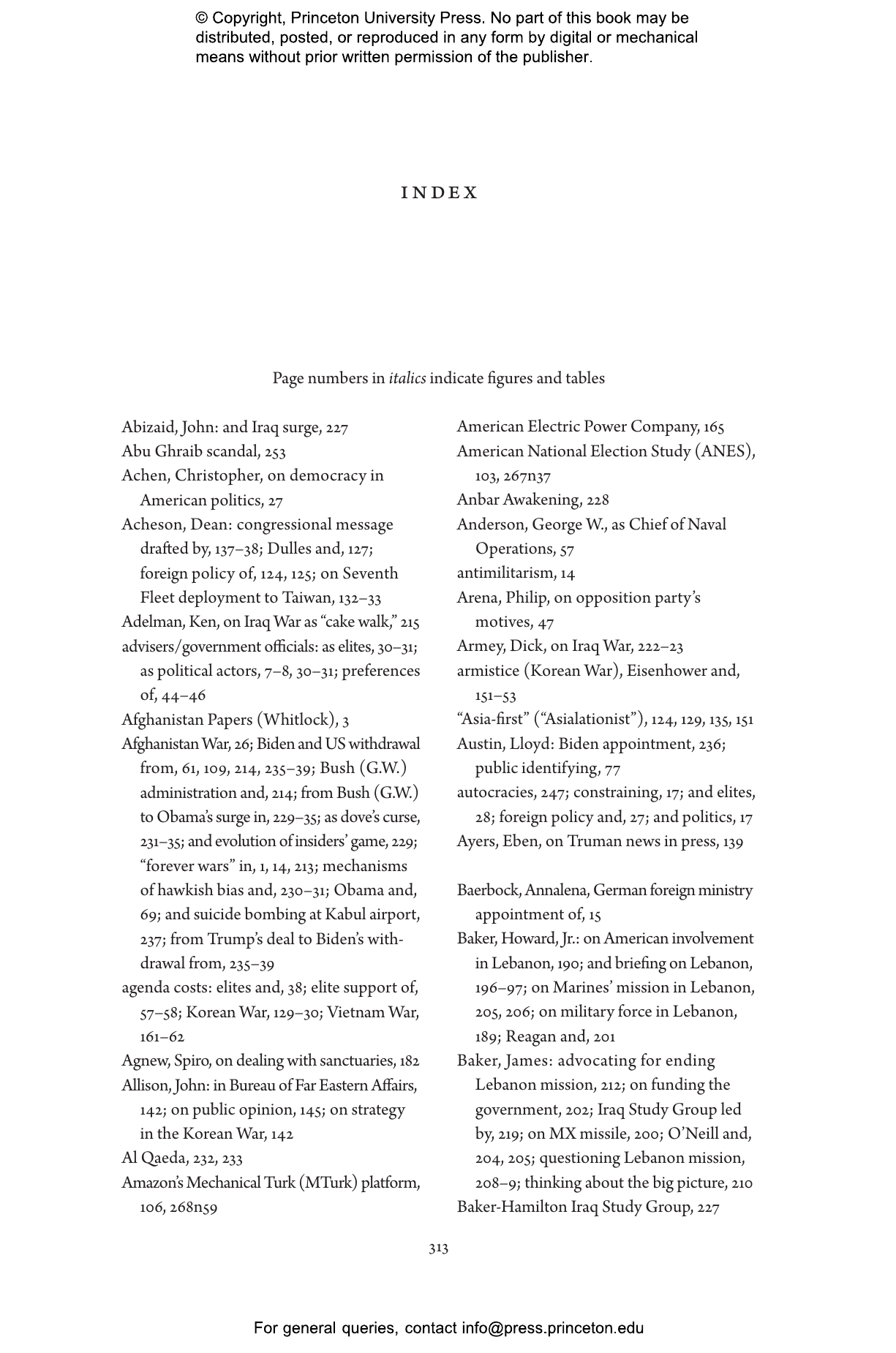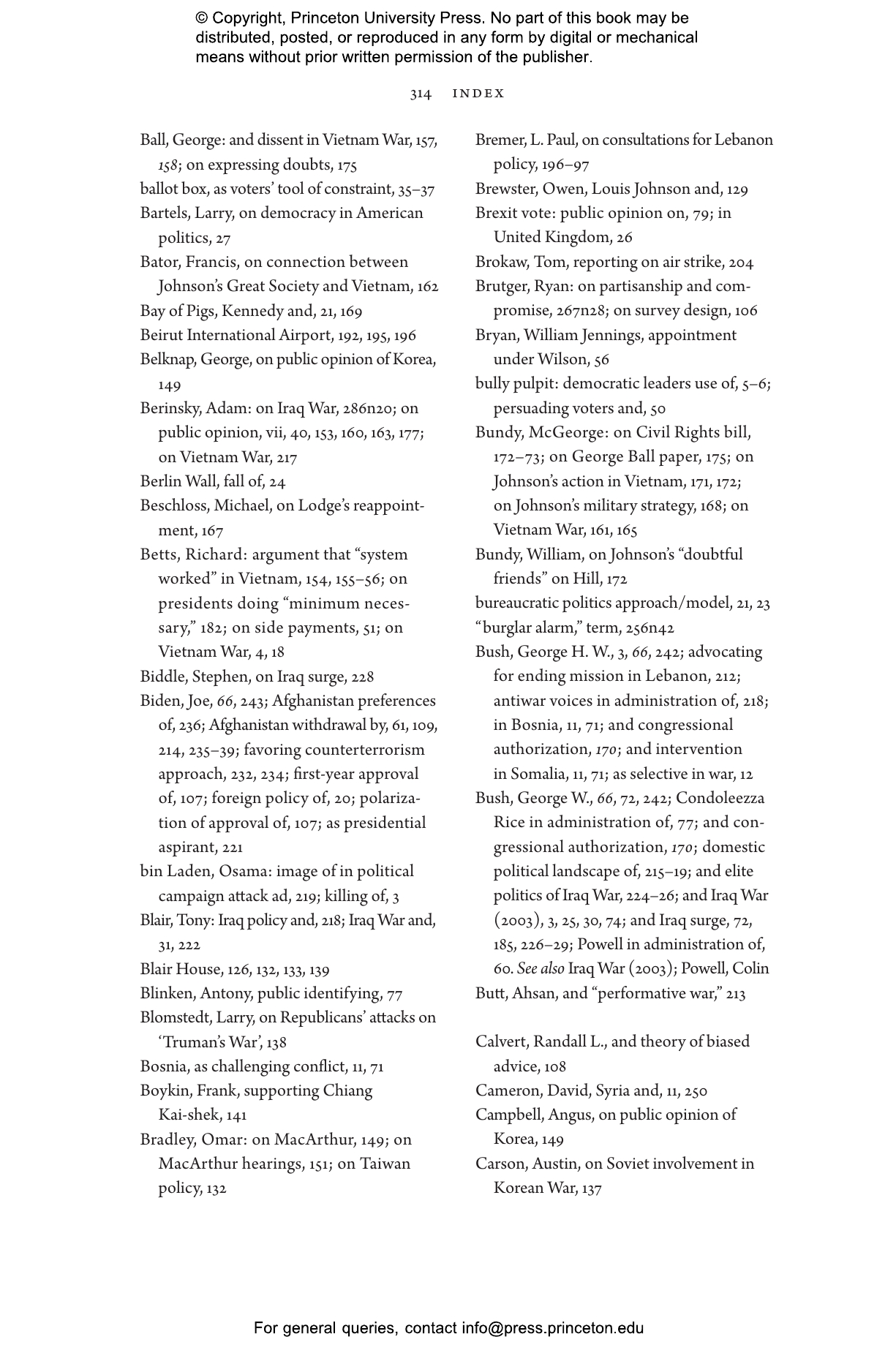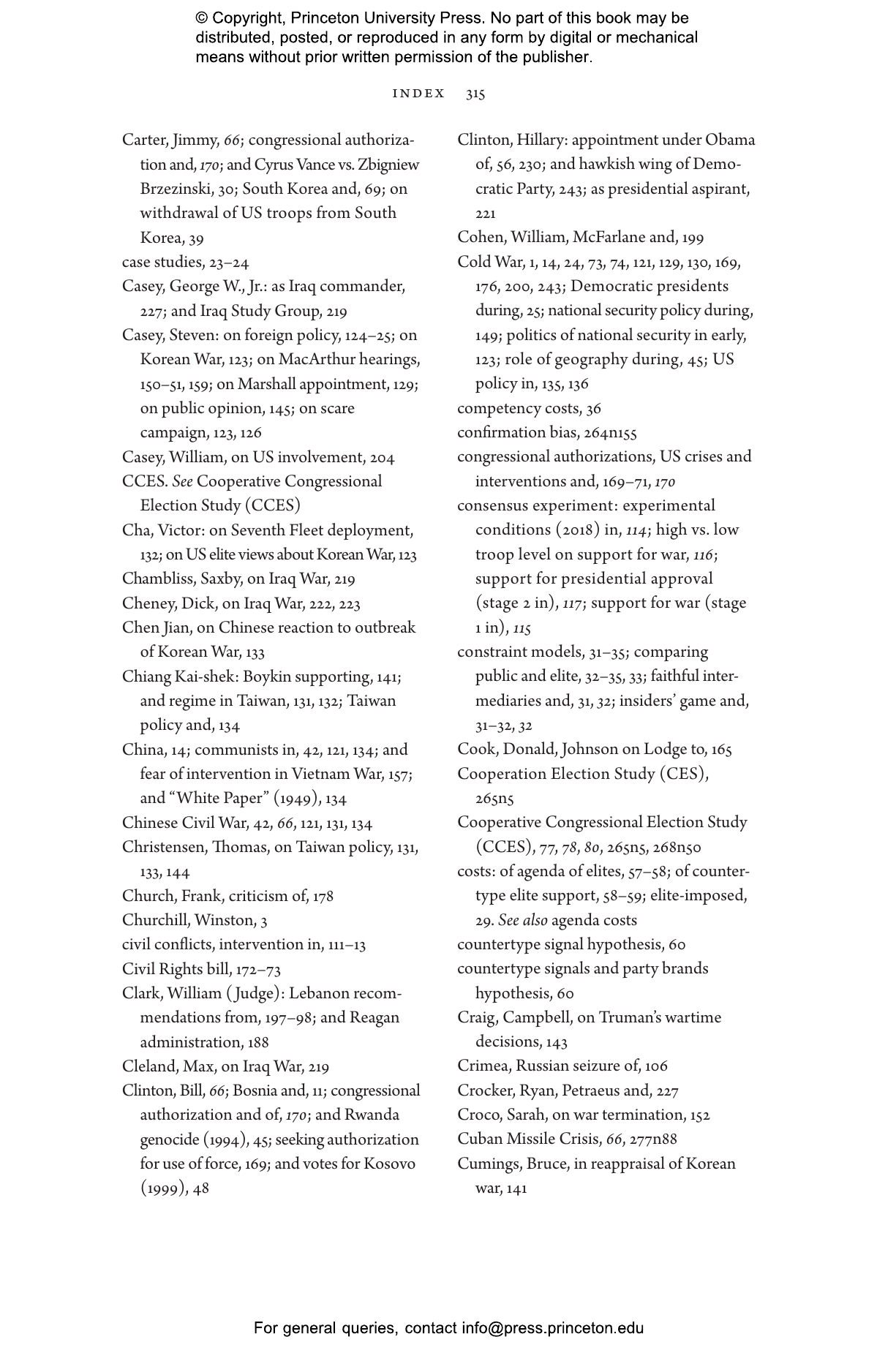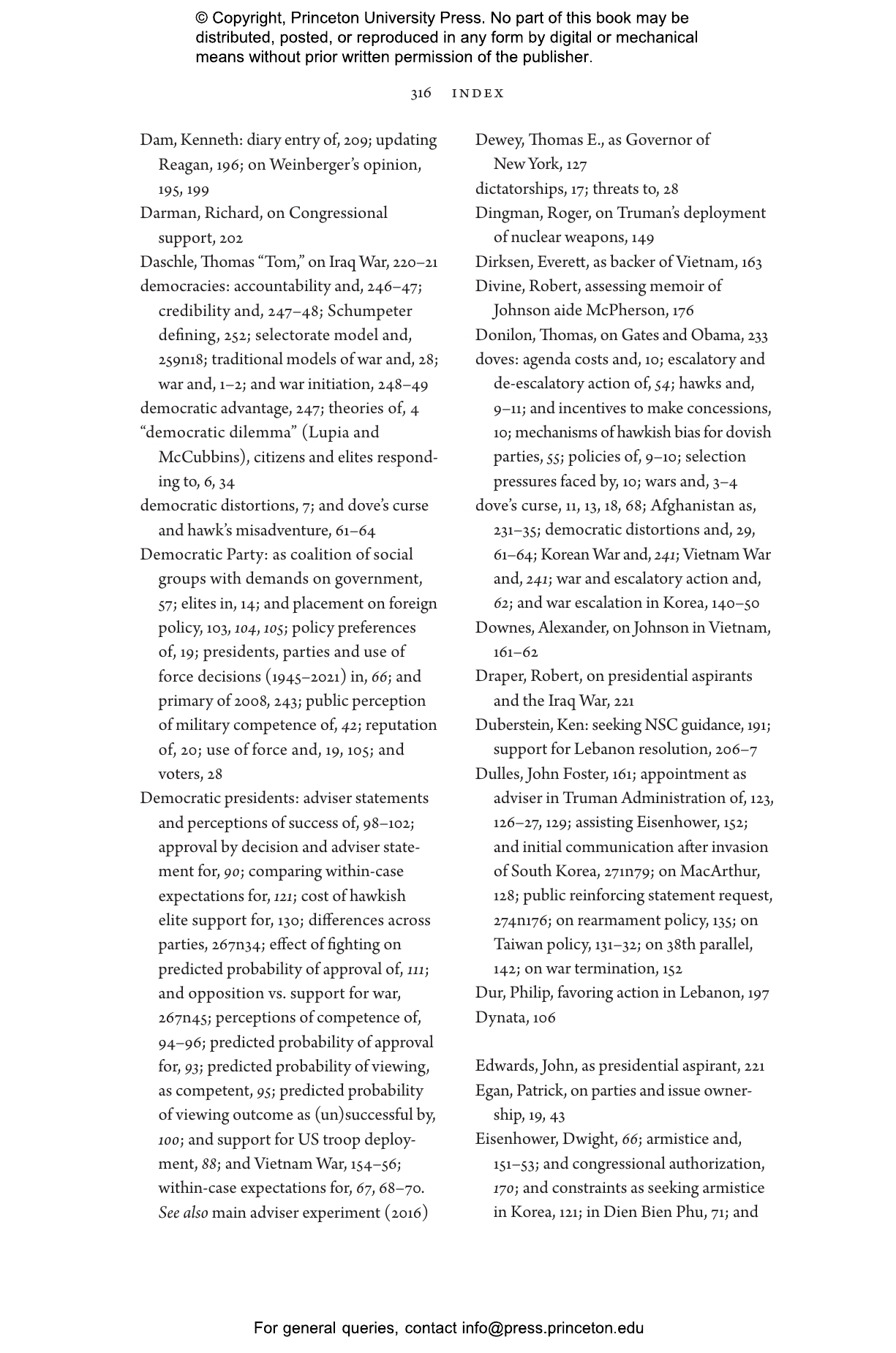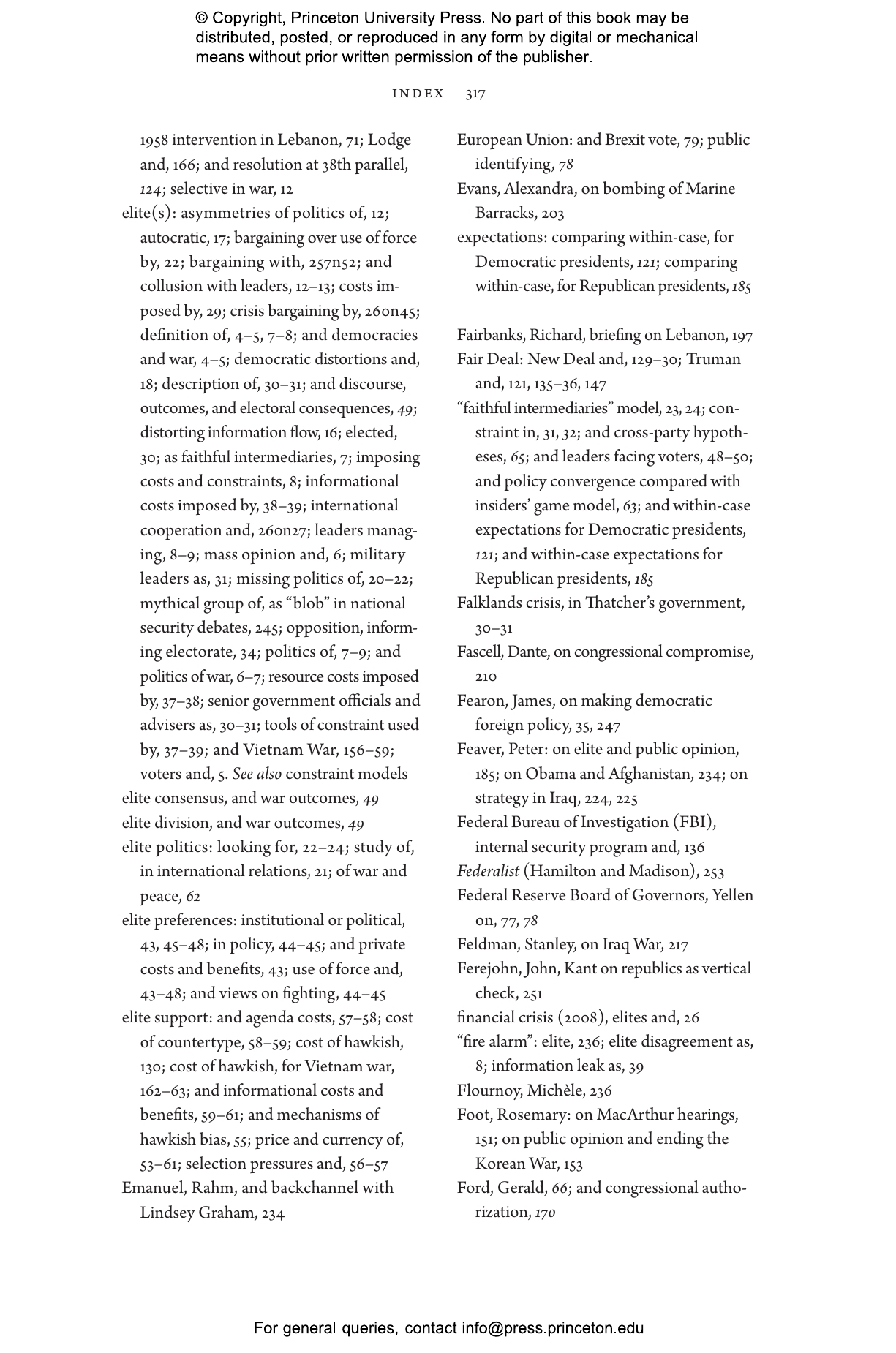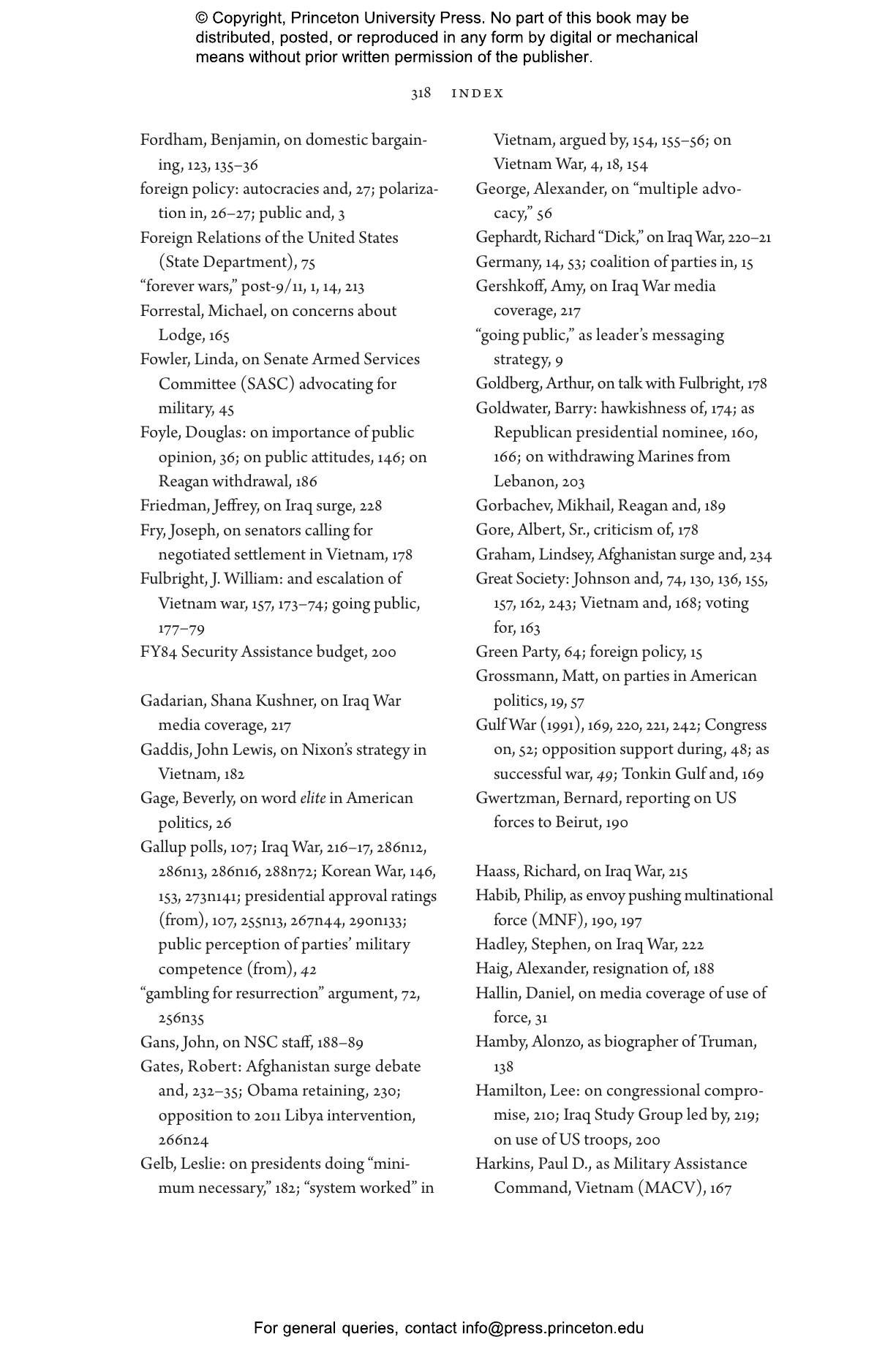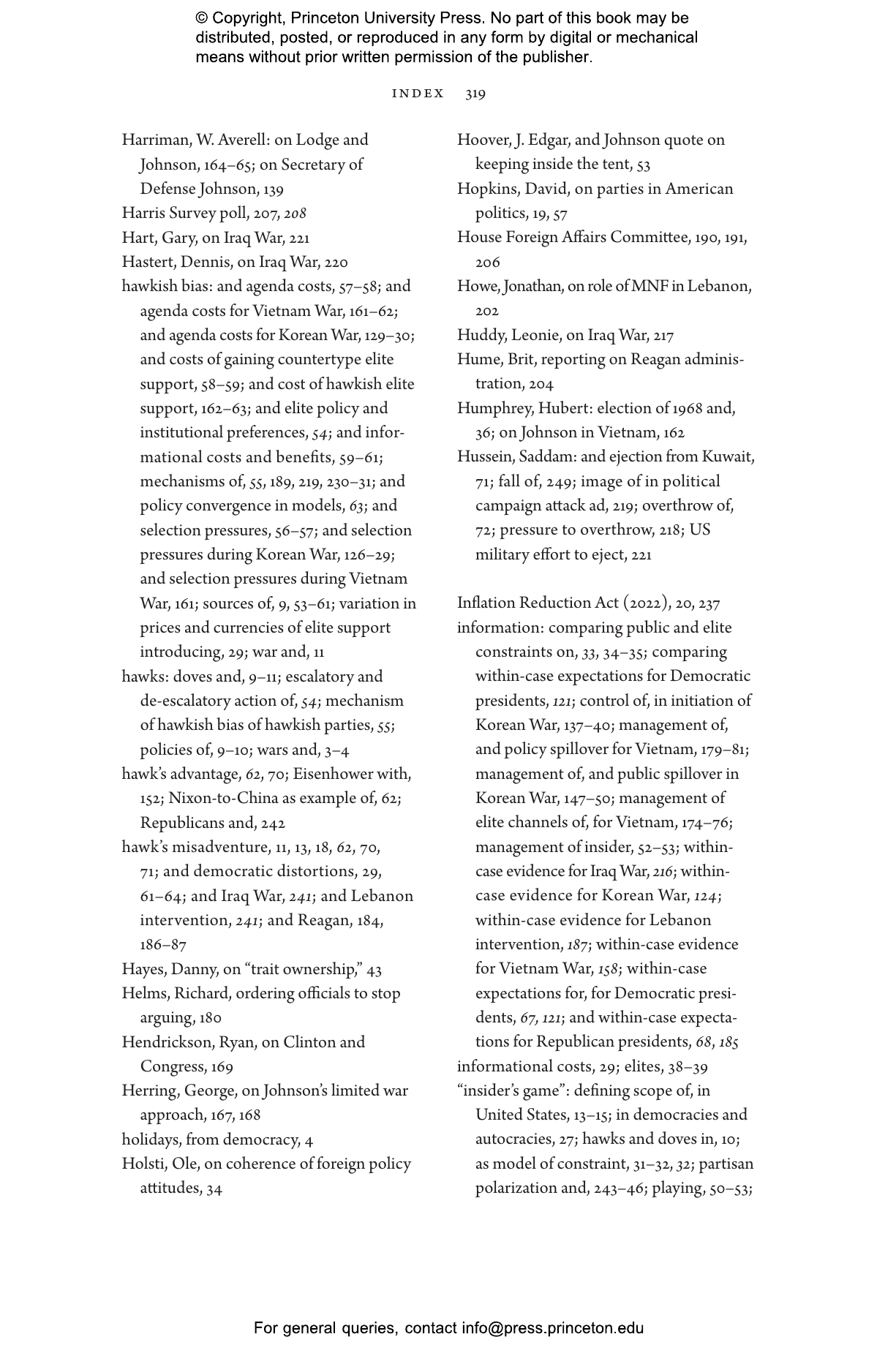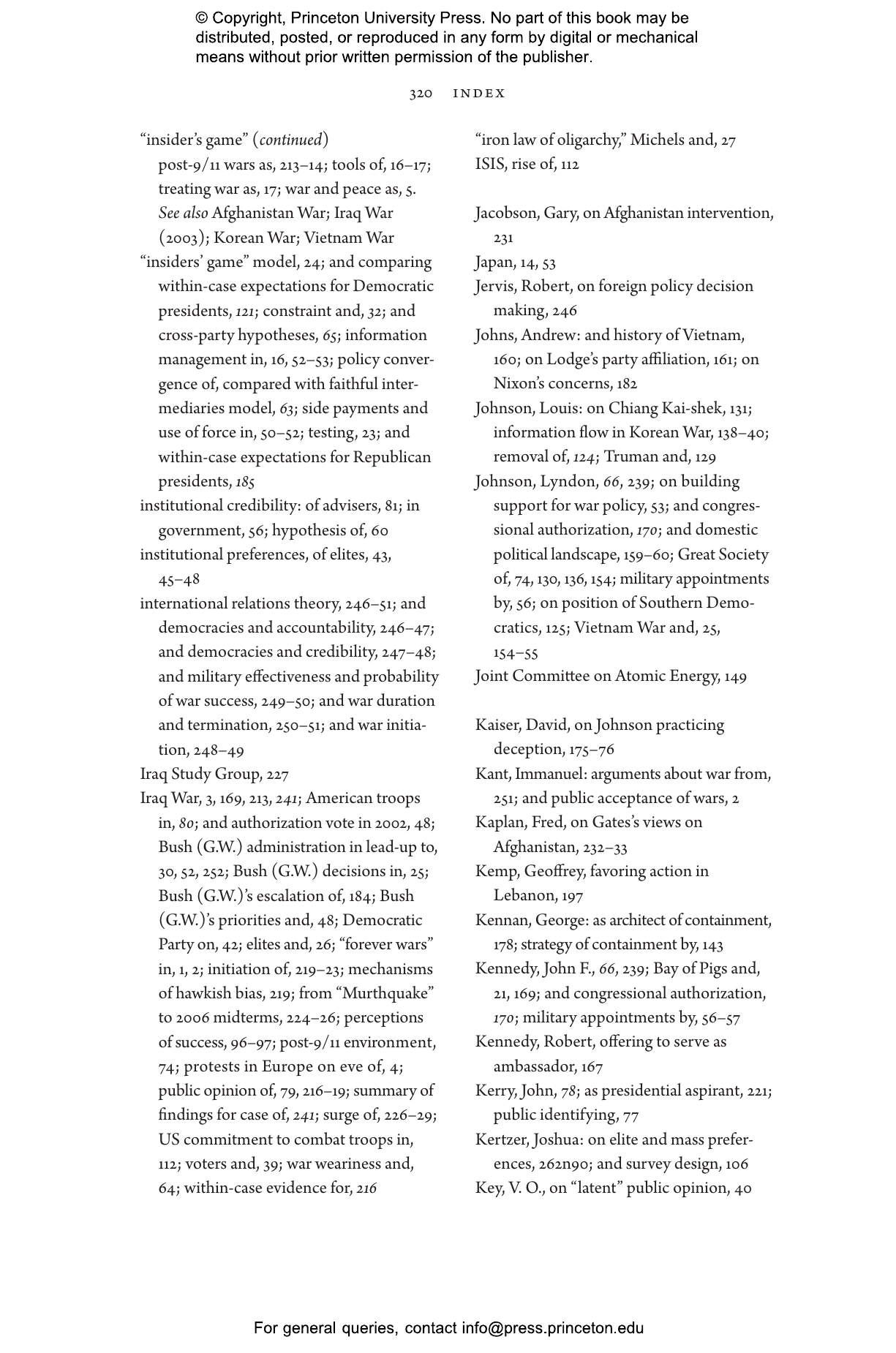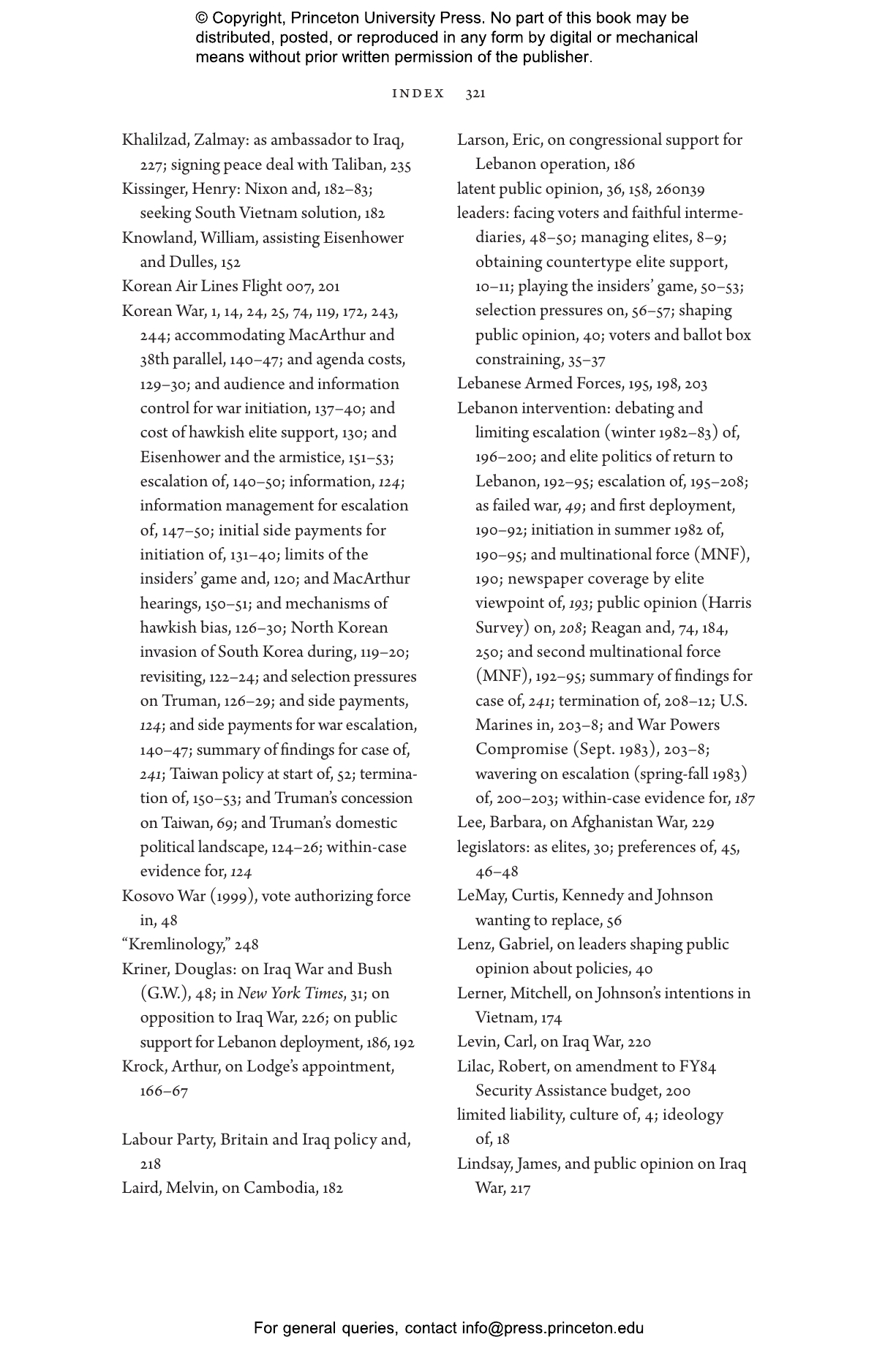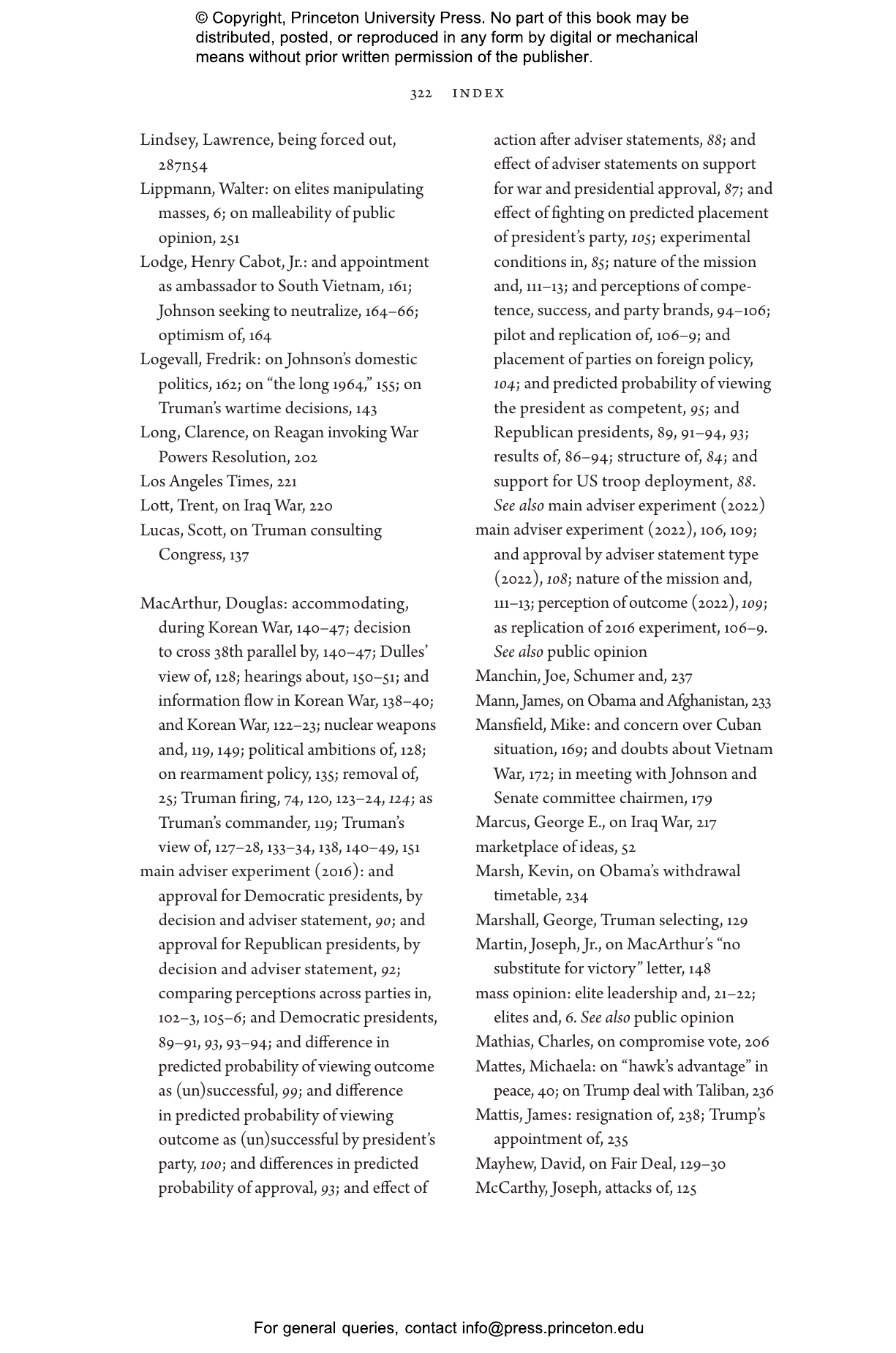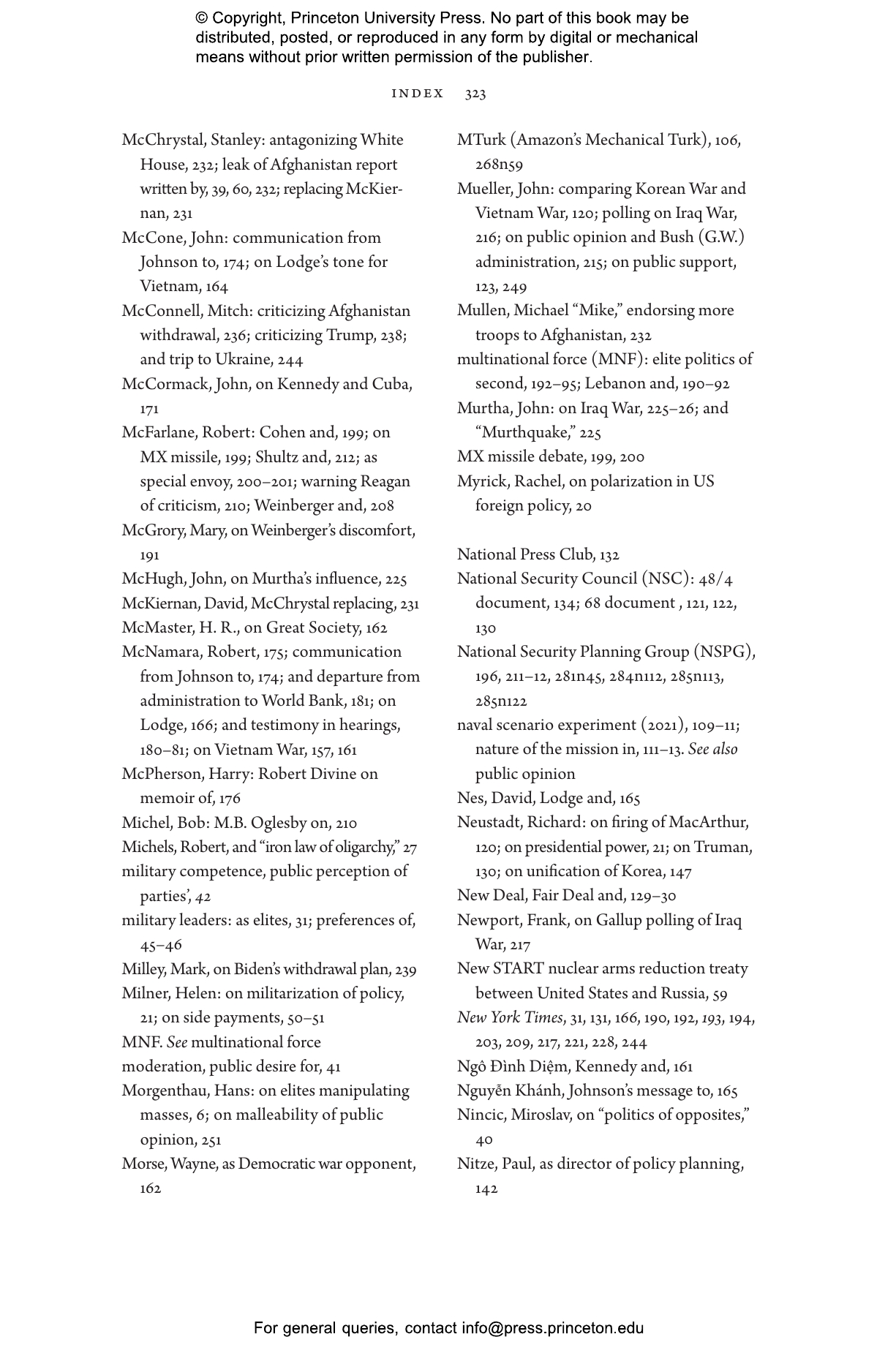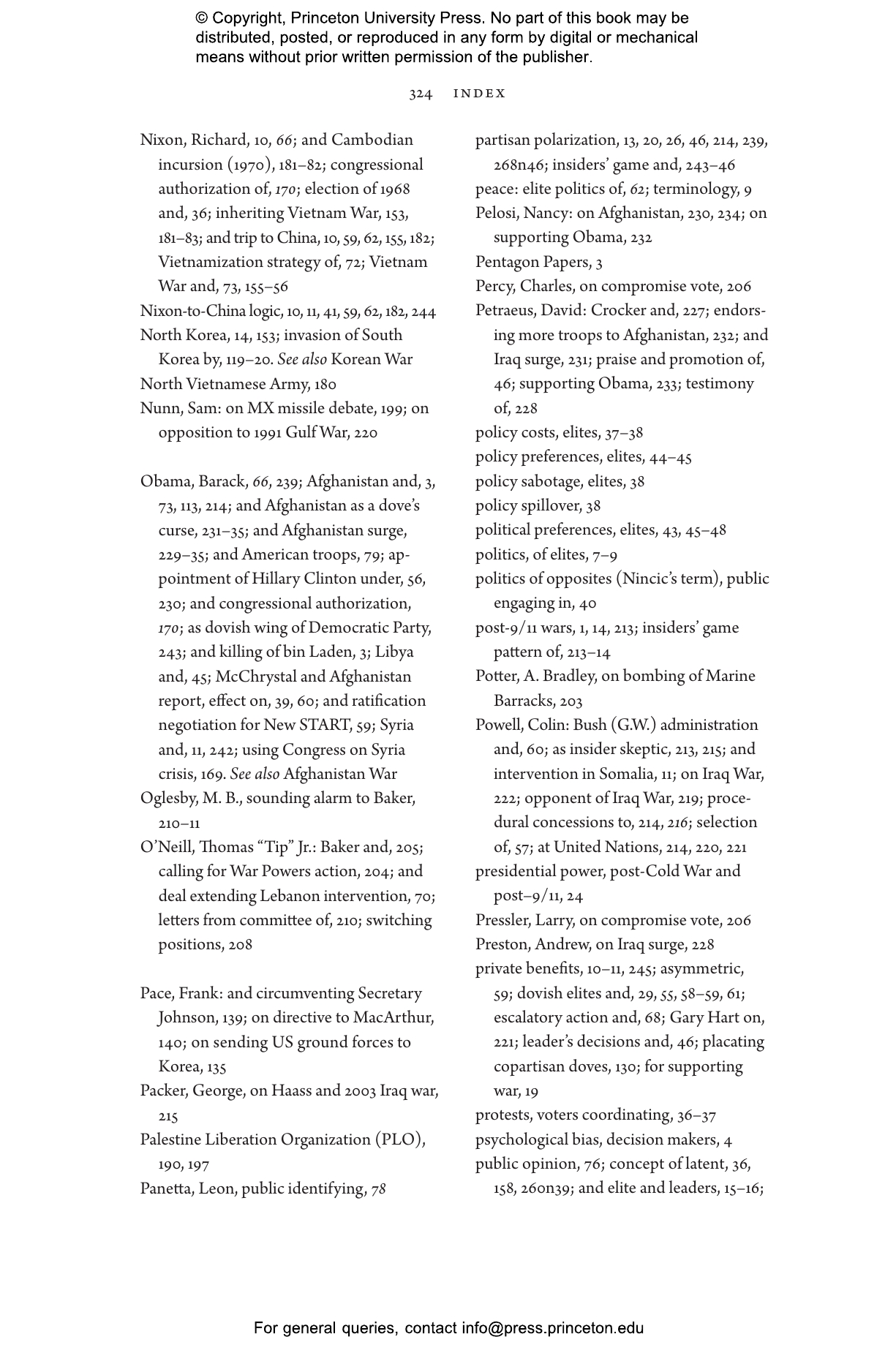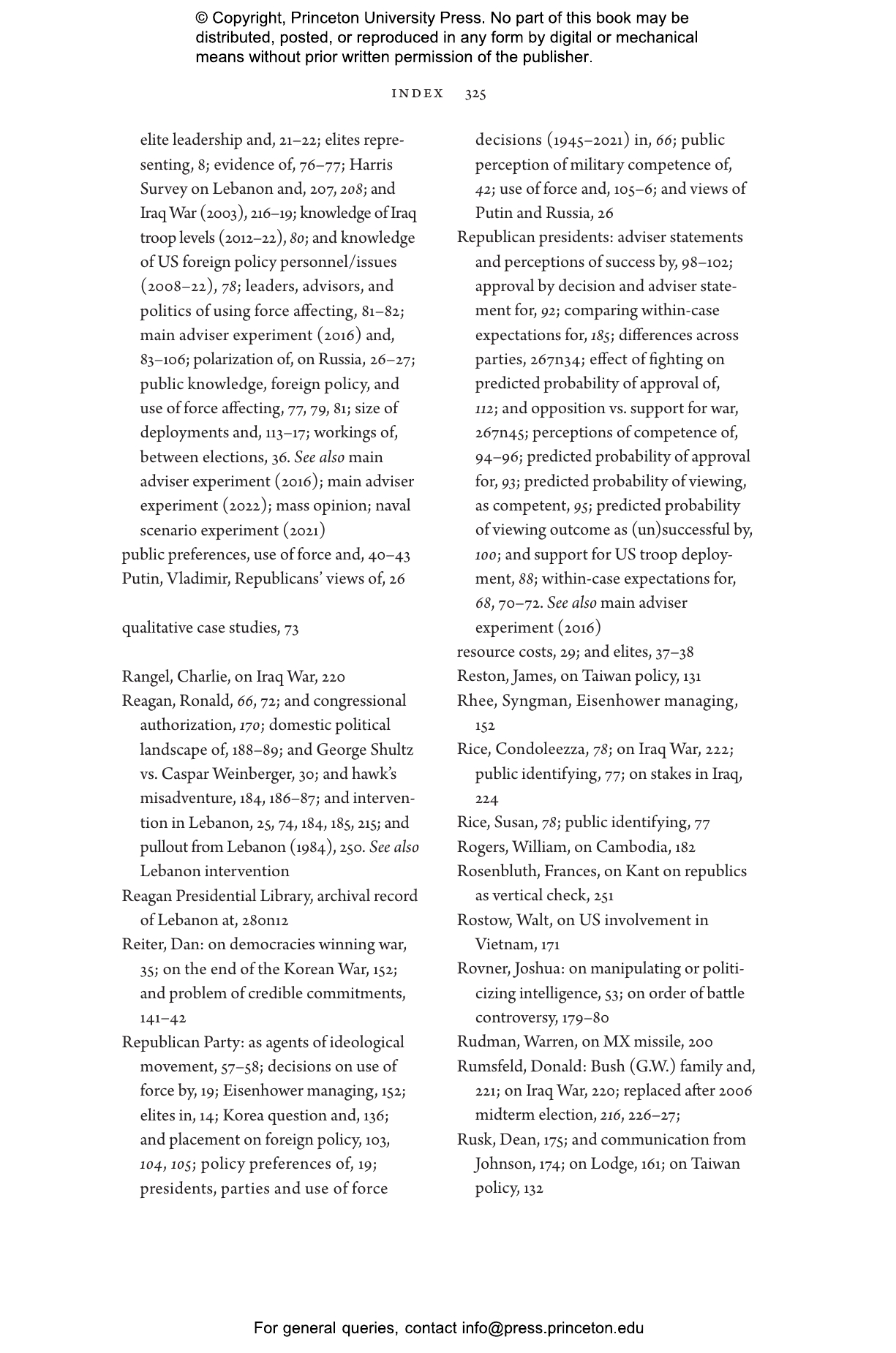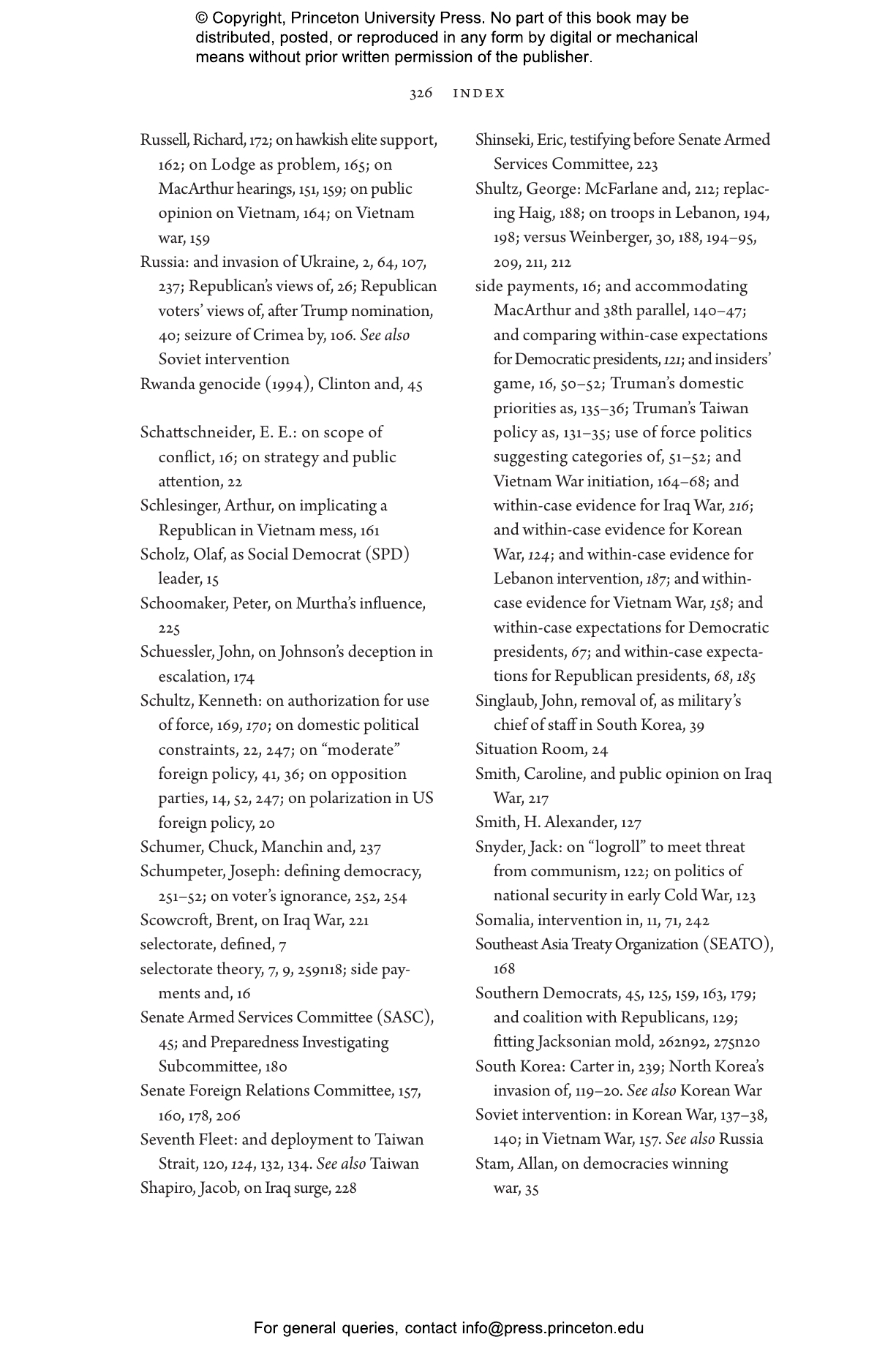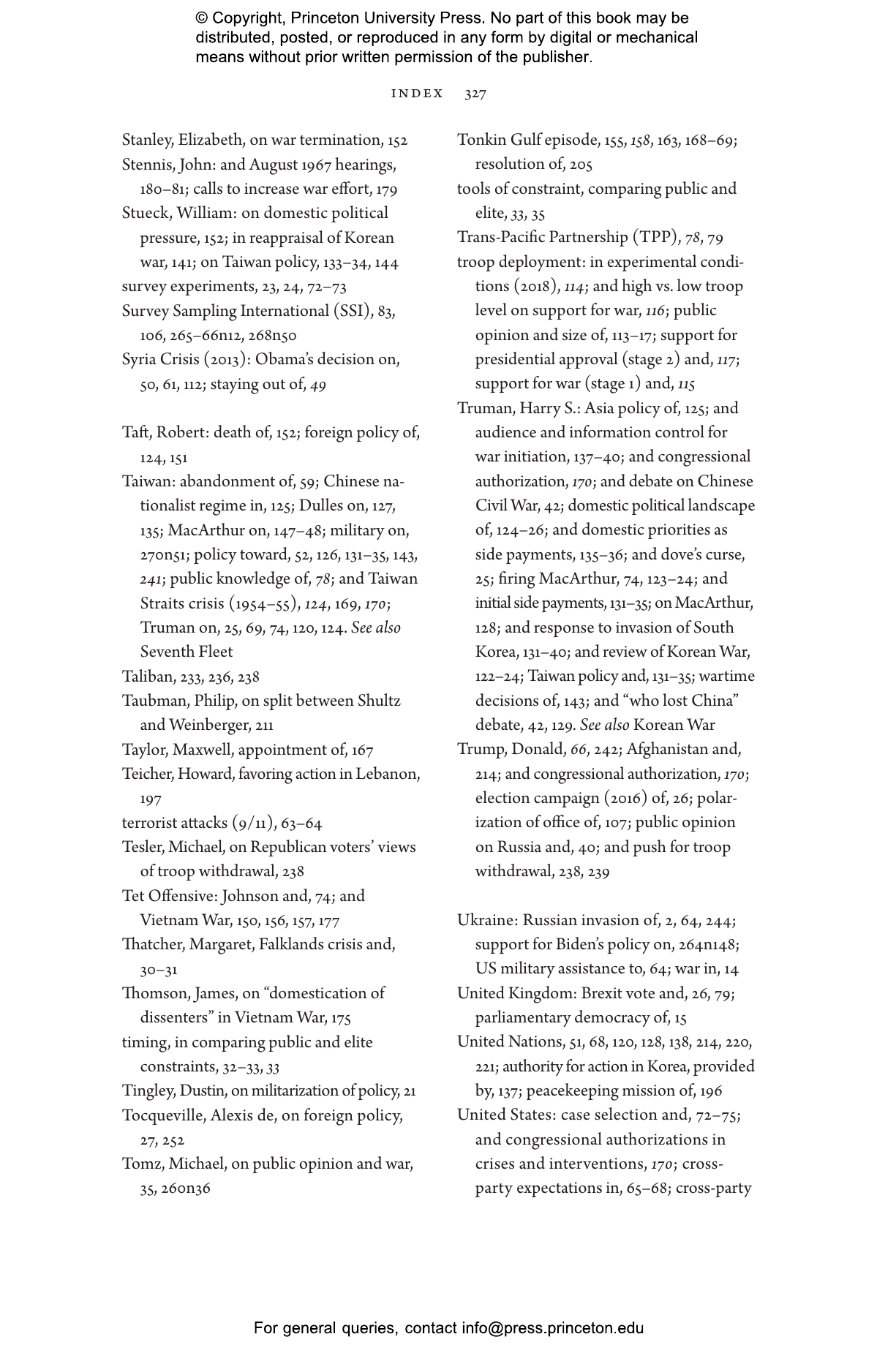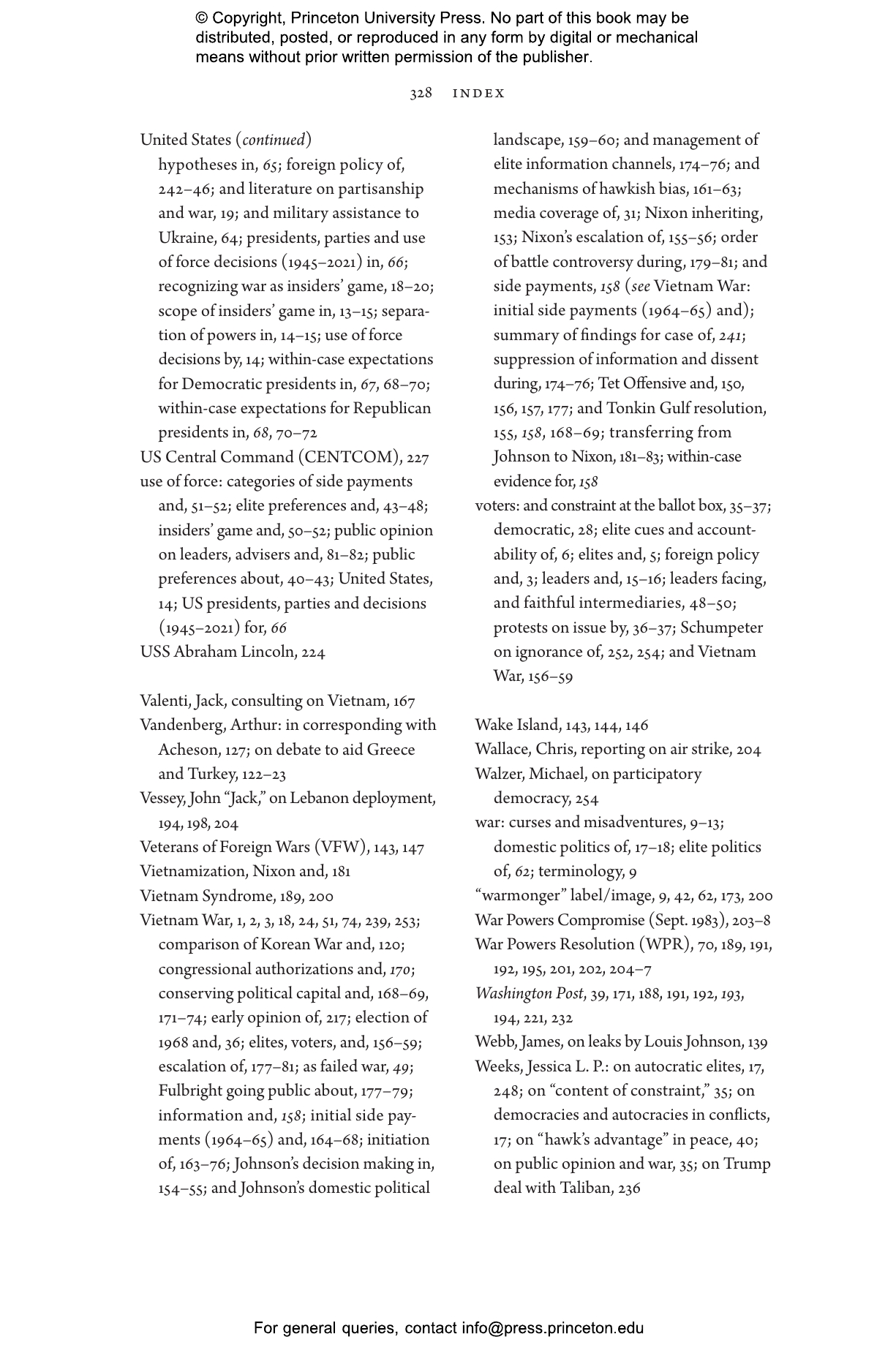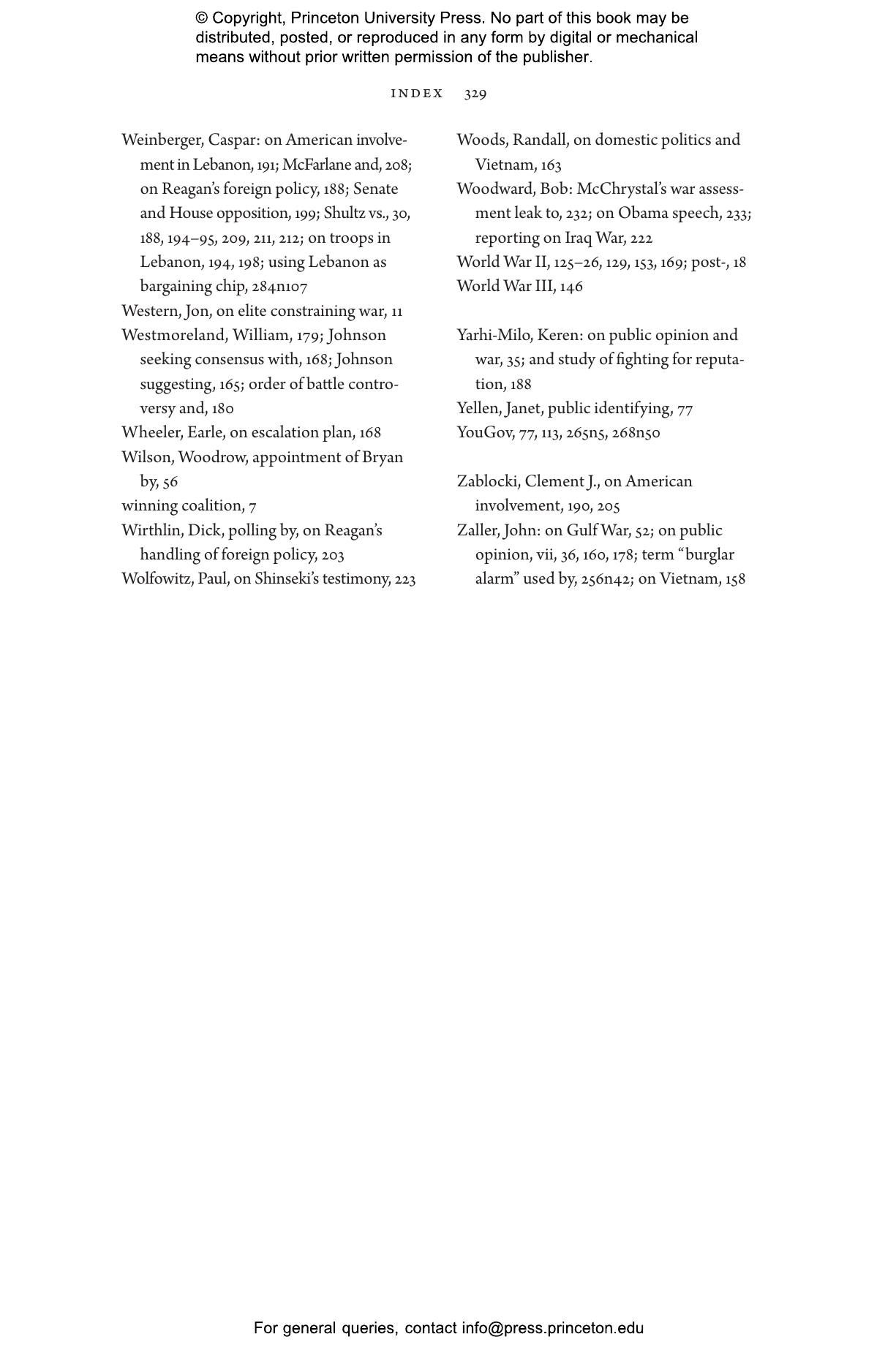One of the most widely held views of democratic leaders is that they are cautious about using military force because voters can hold them accountable, ultimately making democracies more peaceful. How, then, are leaders able to wage war in the face of popular opposition, or end conflicts when the public still supports them? The Insiders’ Game sheds light on this enduring puzzle, arguing that the primary constraints on decisions about war and peace come from elites, not the public.
Elizabeth Saunders focuses on three groups of elites—presidential advisers, legislators, and military officials—to show how the dynamics of this insiders’ game are key to understanding the use of force in American foreign policy. She explores how elite preferences differ from those of ordinary voters, and how leaders must bargain with elites to secure their support for war. Saunders provides insights into why leaders start and prolong conflicts the public does not want, but also demonstrates how elites can force leaders to change course and end wars.
Tracing presidential decisions about the use of force from the Cold War through the wars in Iraq and Afghanistan, Saunders reveals how the elite politics of war are a central feature of democracy. The Insiders’ Game shifts the focus of democratic accountability from the voting booth to the halls of power.
Elizabeth N. Saunders is professor of political science at Columbia University. She is the author of Leaders at War: How Presidents Shape Military Interventions.
“In recent years, there has been an explosion of work on the nature of public reaction to war and Saunders’s work argues that foreign policy—even in a democracy—is effectively run by a small group of political elites. They, not the mass public, are the ‘audience’ for democratic leaders. This is the best work on public opinion and war in years and is sure to be the most important work at the intersection of American politics and international relations in the years to come.”—Adam J. Berinsky, author of In Time of War: Understanding American Public Opinion from World War II to Iraq
“This book is a real achievement. It is a must-read for scholars interested in the domestic politics of foreign policy and international relations. Saunders overturns much of what we think we know about democracies, domestic politics, and war. This theoretically innovative book marks a turning point in the literature, one that will help push the field to engage with domestic politics in exciting new ways.”—Austin Carson, author of Secret Wars: Covert Conflict in International Politics
“You cannot understand American foreign policy without understanding the elites who shape it. Drawing on deep research, compelling history, political analysis, and bold thinking, Elizabeth Saunders has written an indispensable guide to understanding who makes decisions about war and peace and why hawkish views so often win out. Read this book if you want to understand how a democracy like the United States goes to war.”—Ben Rhodes, author of The World as It Is and After the Fall
“This compelling book examines the bargaining that occurs between democratic leaders and elites in the shadow of public accountability and the ways it influences decisions about war initiation, escalation, and termination. A significant contribution to debates about domestic politics and foreign policy.”—Jessica L. P. Weeks, author of Dictators at War and Peace
“The Insiders’ Game is an important, landmark work of scholarship that breaks new ground on the politics of democratic elites during choices involving war. This book cements Saunders’s status as the unofficial dean of US foreign policy analysis.”—Daniel W. Drezner, author of The Ideas Industry: How Pessimists, Partisans, and Plutocrats Are Transforming the Marketplace of Ideas
